As the arthouse cinema market continues to regain its footing, the list of what may be considered an overlooked film could be quite vast, depending on one’s metrics. For our yearly feature highlighting the 50 best films you might have missed––arriving before our overall top 50 films––we’ve sought to dig deep to find the gems that deserved more attention upon their initial release and have mostly been left out of year-end conversations. Hopefully, with many widely available on a variety of streaming platforms, they will begin to find an expanded audience.
While many documentaries would qualify for this list, we stuck strictly to narrative efforts; one can instead read our rundown of the top docs here. Check out the list below, as presented in alphabetical order.
The Adults (Dustin Guy Defa)
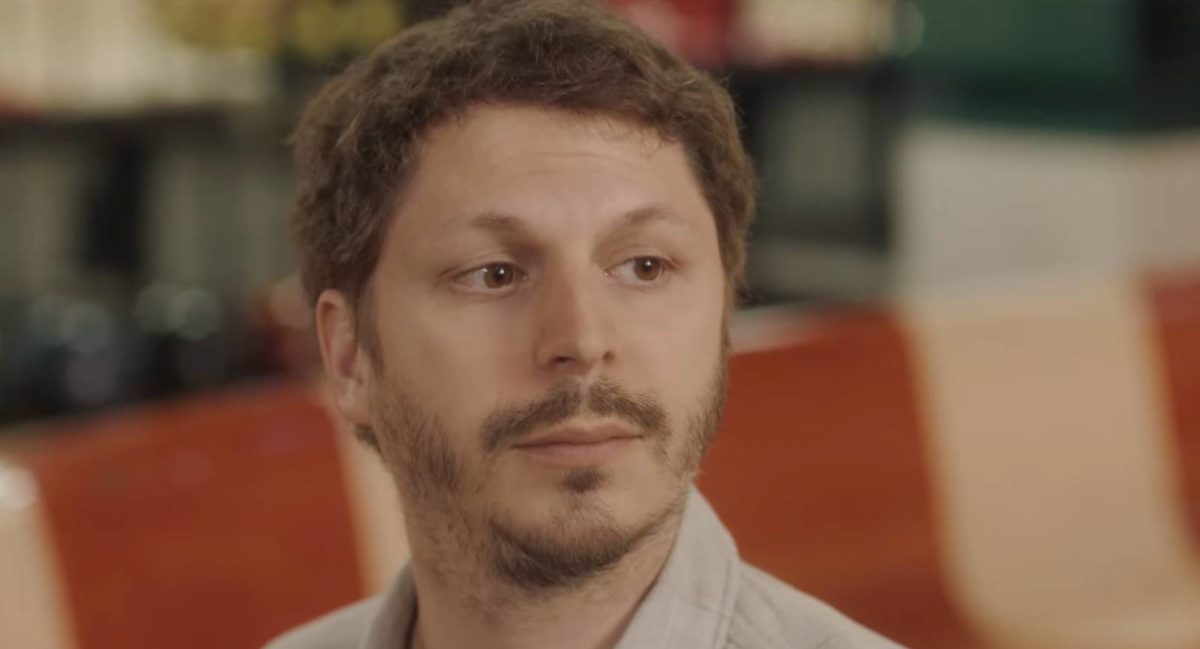
The rare case of a Movie About Nothing whose languorous attitudes collect a world of concern: desire against reality, metropolitan and suburban manners, the smallest distinctions of economic class. Lest that suggest thesis before pleasure, Dustin Guy Defa’s third feature builds its portrait with perhaps the funniest, point-for-point intelligent dialogue of any film this year––delivered by Michael Cera, Sophia Lillis, and Hannah Gross with the dual familiarity and discomfort that comes from being family. Special commendation for an expert location work around my native Fishkill, New York. – Nick N.
Astrakan (David Depesseville)
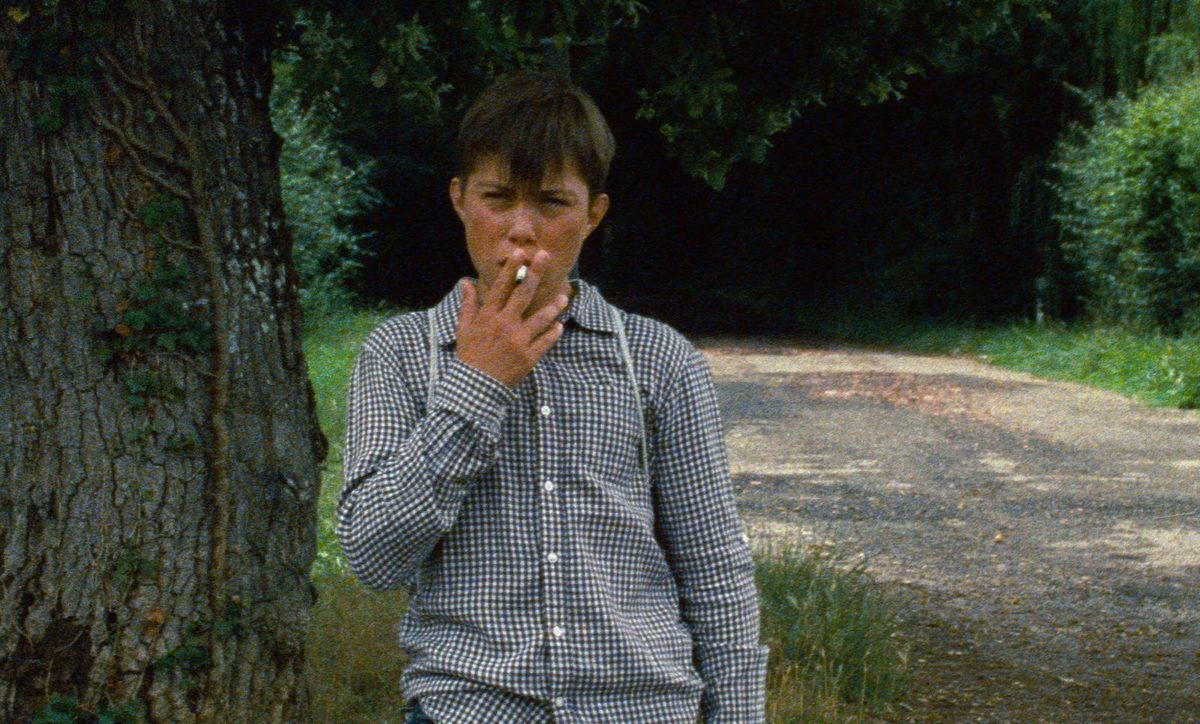
Astrakhan fur is unique: dark, beautiful, and stripped exclusively from newborn lambs, even ones killed in their mother’s womb. (Stella McCarthy once said it’s like wearing a fetus.) That ruthlessness––a sense of lost innocence; blood sacrifice––runs deep in Astrakan, a new film from France and one of the better in Locarno this year; and if that title isn’t enough to give pause, plenty else in the opening exchanges will. The first act is a procession of flags, both red and false: at the opening the protagonist, Samuel, lightly goads a snake in the reptile house of a zoo; moments later a rabbit is hung and skinned in his kitchen with all the ceremony of a boiled kettle; queasiest of all, an older lad is seen walking toward the house cradling berries in his shirt, just enough that the lip of his underwear and his midriff are left strikingly visible. – Rory O. (full review)
The Civil Dead (Clay Tatum)
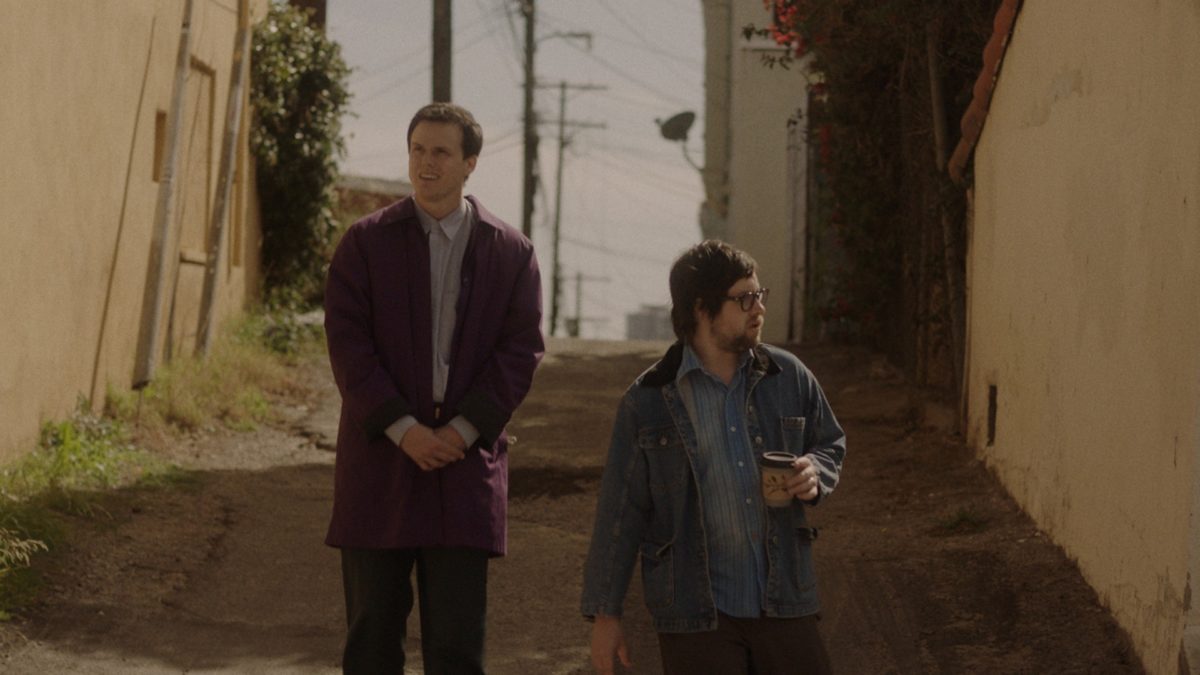
It’s such a joy hanging with The Civil Dead leads Clay Tatum and Whitmer Thomas (who grew up together in Alabama), it’s easy to miss that the majority of the film consists of just that––in this way, their laidback ghost story never announces itself as a COVID tale like other films from that era. Deliberate pacing illustrates a confidence in the material rarely found in a debut; by resisting joke-a-minute structure, its payoffs are more satisfying. Whether their next project keeps a shoestring budget or is scaled-up, Tatum and Thomas have proven themselves a comedy pair to watch. – Caleb H.
Divinity (Eddie Alcazar)
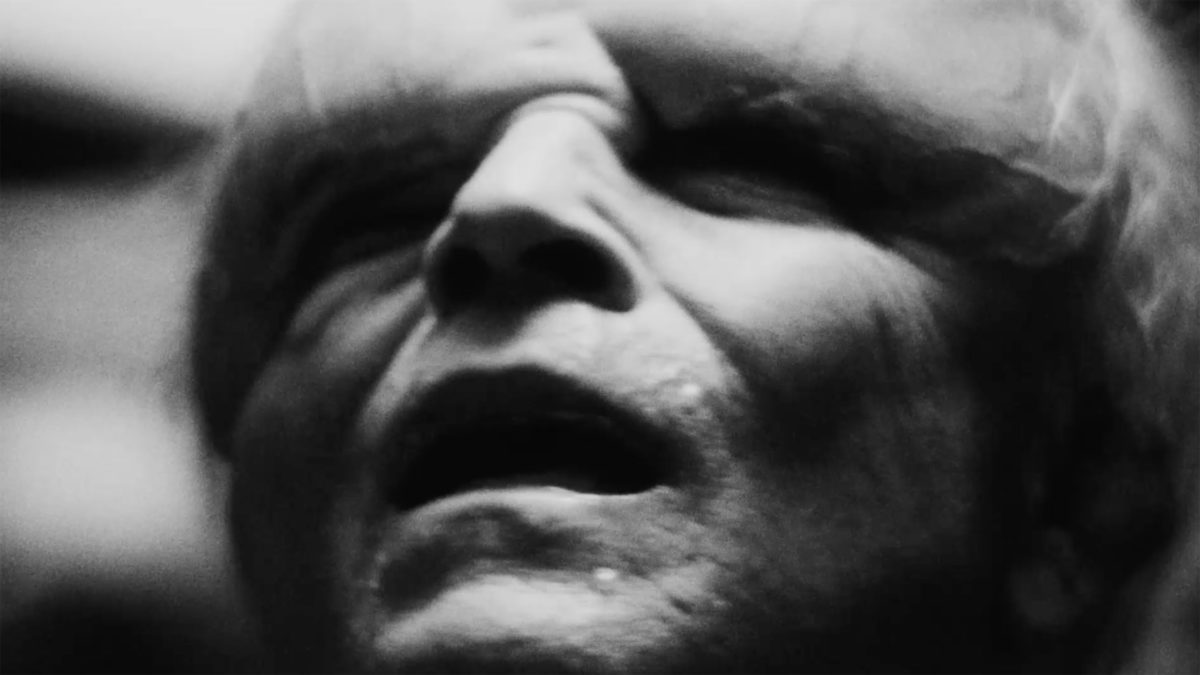
One of two projects on this list that exists due to Steven Soderbergh’s relentless pursuit to bring visionary independent filmmakers’ imaginations to the screen, Divinity is, with the utmost guarantee, unlike anything you’ve seen before. And I mean that for the better. Eddie Alcazar’s abrasive, densely grainy, black-and-white experimental sci-fi horror is a cosmic mindfuck of the highest order: digital video-game aesthetics meet a sinister psychedelia nestled away in a desert landscape from which a monster begs to emerge at the will of near-alien brothers. Here’s hoping Soderbergh opened the door for whoever wants to next back the selfless filmmaker, who wears a mask in interviews to shirk identity as much as importance. – Luke H.
Dry Ground Burning (Adirley Queiros and Joana Pimenta)
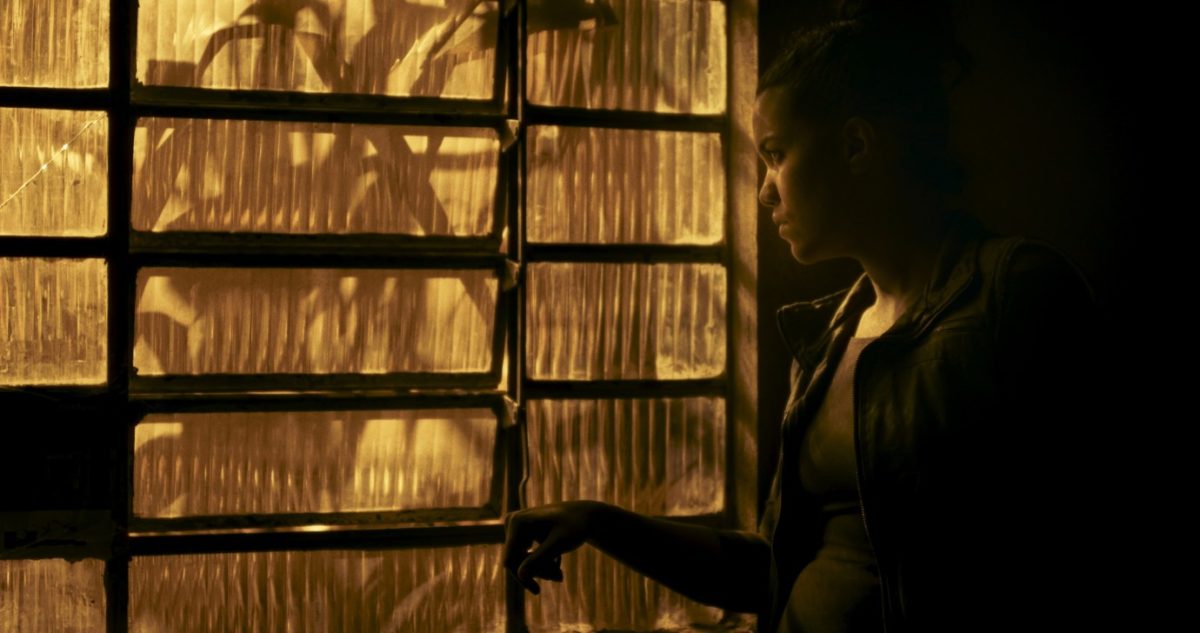
Dry Ground Burning treats real-life settings––the Sol Nascente slum, outside Brasilia––and people as the material of myth. It drops the Afrofuturism from co-director Queiros’ first two films but still feels like a genre film. Its vision of Sol Nascente owes something to George Miller. When Lea (Léa Alves) gets out of jail, she finds that her sister Chitara (Joana Darc Furtado) leads a gang siphoning gasoline from underground refineries. Dry Ground Burning never lets the audience forget how it was made, with non-professional actors performing a story about Black, queer women’s rebellion. It’s an outlaw ballad that treats marginalized people as glamorous heroes. – Steve E.
Earth Mama (Savanah Leaf)

Former Olympian Savanah Leaf’s grainy, gorgeous directorial debut Earth Mama follows a pregnant woman with two kids in foster care as she hopes to regain her children. The movie belongs to Tia Nomore as Gia, but Leaf imbues such resonance into the picture. She casts real mothers and addicts in the Bay Area who are also fighting, making the stakes of the film never feel anything less-than-real. Leaf criticizes the circular system that Gia must abide by, the ways in which she’s set up to fail even before she can hope to begin. Earth Mama remains unflinching in its intimacy and unyielding in the harshness within the daily difficulties of just scraping by. – Mike F.
Falcon Lake (Charlotte Le Bon)
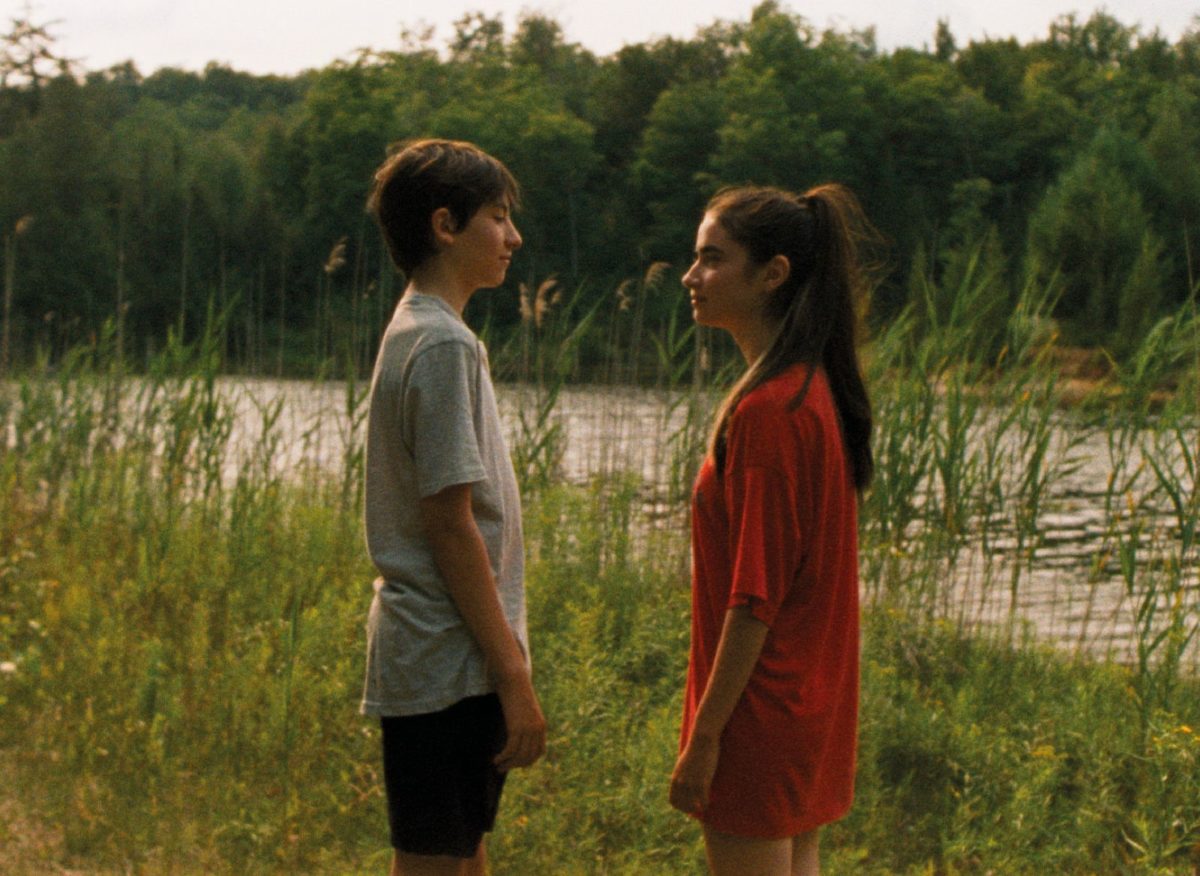
Picture a folk-horror version of Licorice Pizza’s age-gap attraction, and you’ll arrive near Falcon Lake. Set around a lake in Quebec reportedly haunted by a person who drowned there, it relates a summer vacation romance by Bastien (Joseph Engel), a 13-year-old boy sharing a cabin with his parents and brother. He meets Chloe (Sara Montpetit), a 16-year-old girl whose parents are friends of his family, and falls hard for her. The film establishes a creepy, ominous mood from its first scene, with dark lighting, Academy ratio, and Shida Shahabi’s warped score. Falcon Lake subverts the coming-of-age narrative to use teenage heartbreak as the set-up for a far greater risk. – Steve E.
The Five Devils (Léa Mysius)
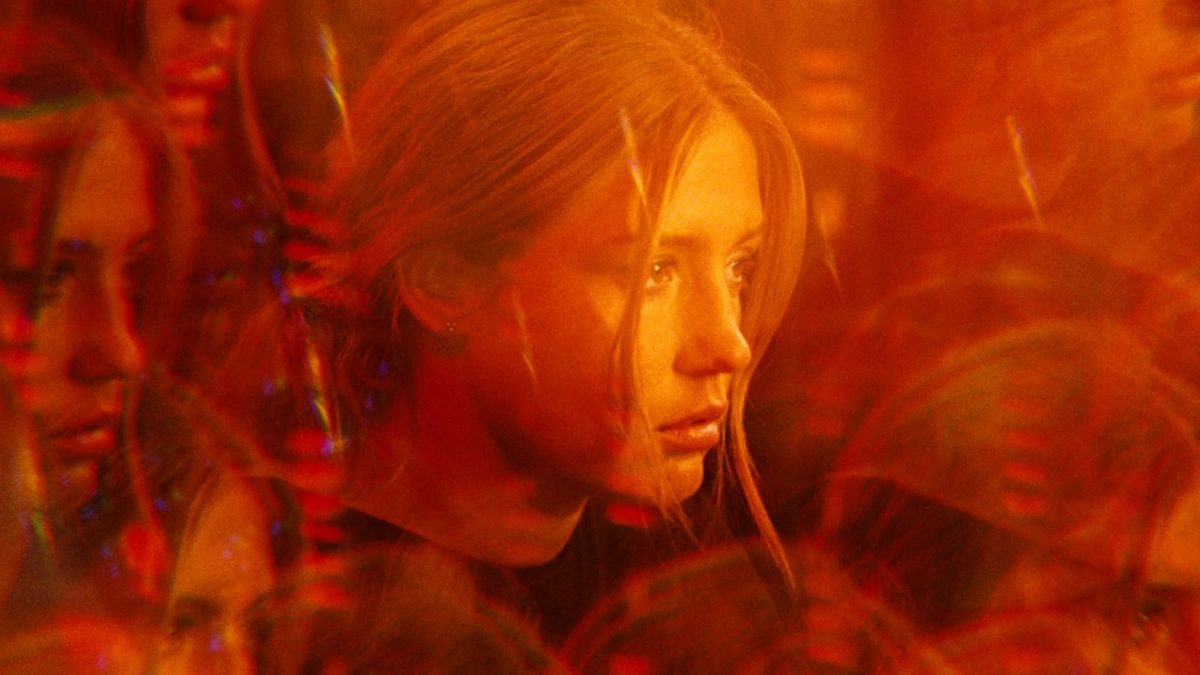
Few films this year have lingered on my mind quite like Léa Mysius’ sophomore effort The Five Devils, a sensory time-travel tale where emotional logic is prioritized over narrative. Revelatory newcomer Sally Dramé stars as Vicky, a young girl who creates quasi-mythical potions that help enhance her already overwhelming sense of smell––with one particular odor whisking her back in time to uncover the origins of her parents’ fraught relationship. It’s a high concept that seems laughable when written down, but in practice it is intoxicating; a tender drama exploring fraught family legacies reimagined as a borderline science-fiction mystery. – Alistair R.
Fremont (Babak Jalali)
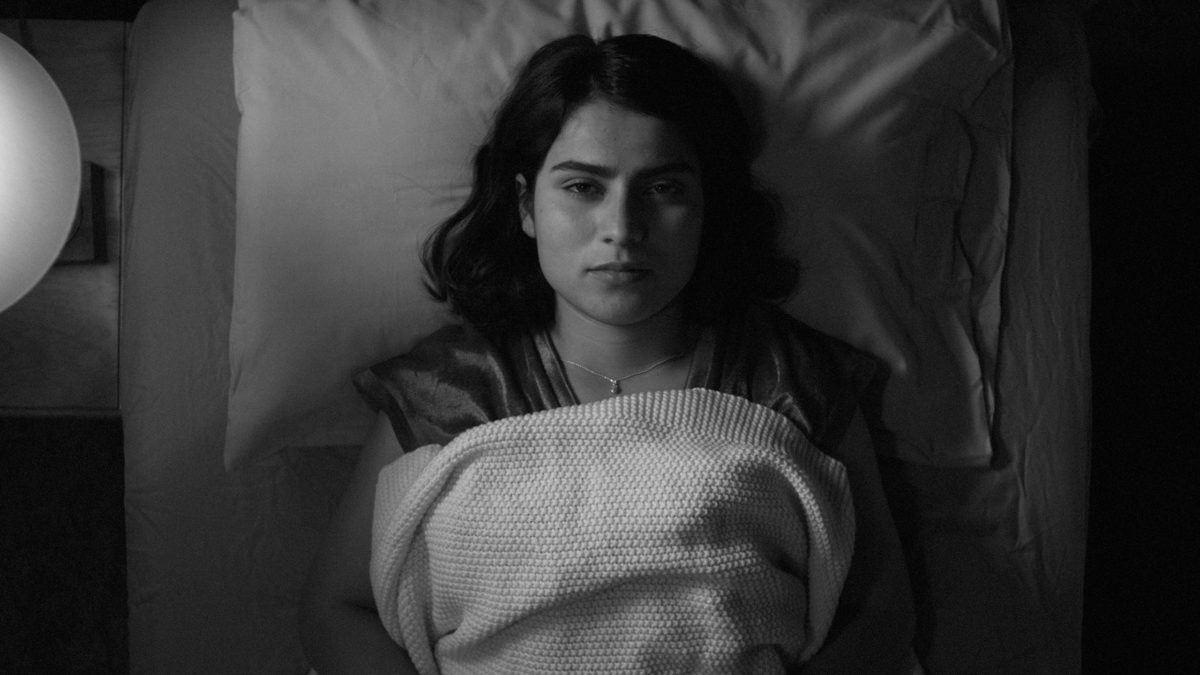
Taking its cues from both Jim Jarmusch and Alexander Payne, this dark comedy and quasi-road movie by Babak Jalali is a both soft and prickly film that paints the escapist dreams of immigrant life in America. With its black-and-white, static shots and front-facing cameras, its direct frankness in stylistic choices is matched by the dry honesty of its central performance from the wonderfully talented Indie Spirit Award-nominated Anaita Wali Zada. In many respects, it’s the kind of movie you’d expect from the ’90s American indie boom, with a minimalist premise and framing but clear vision for the kind of distinct characteristics that make it unique to the immigrant experience. – Soham G.
Full Time (Éric Gravel)
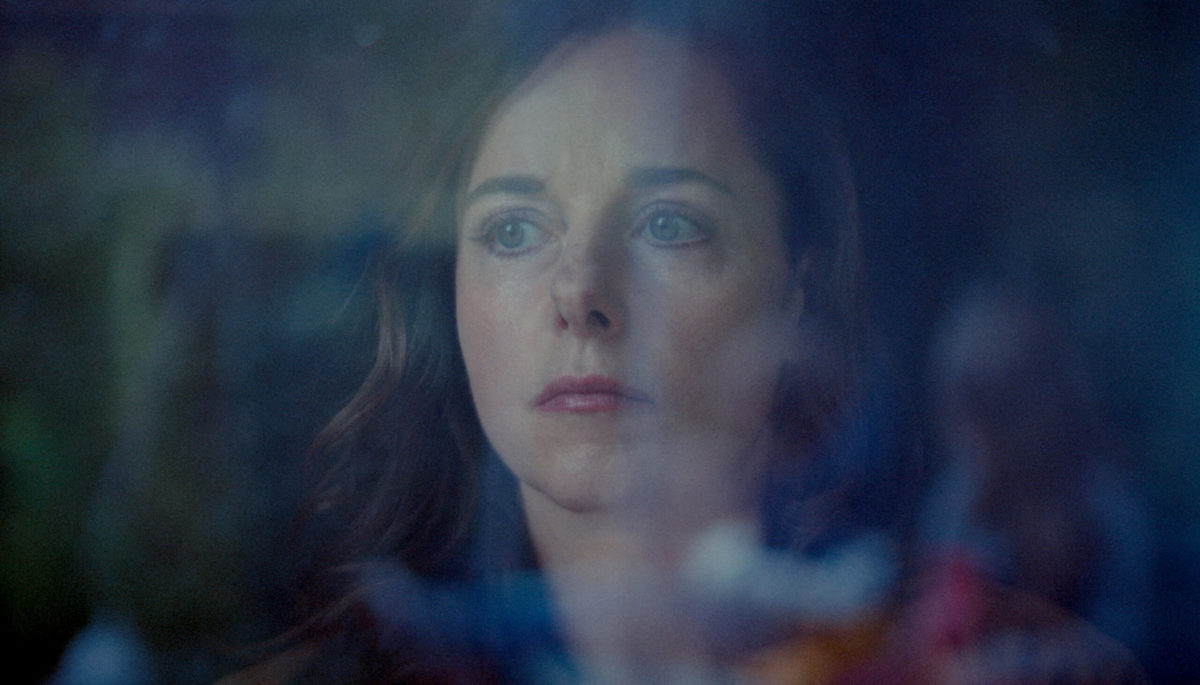
A single mother lands a job interview for a role that can get her career back on track, but the world appears hellbent on sabotaging her in Éric Gravel’s nail-biting Full Time. A transit strike disrupting workers’ commutes, a tense work environment in her current job as a hotel maid, and the day-to-day struggles of raising two children are just some of the hassles Gravel immediately drops viewers into from frame one without slowing down for one second. Anyone who’s worked their ass off just to survive will both relate to and get triggered by Full Time, which stacks the deck against its lead character to portray the harsh reality of a working-class life, where trying to achieve upward mobility has stakes as high as a Mission: Impossible film. – C.J. P.
Hannah Ha Ha (Jordan Tetewsky, Joshua Pikovsky)

At 75 minutes, Hannah Ha Ha uses that concise runtime to meander, settling into Hannah’s (Hannah Lee Thompson) uncomplicated life. Writer-director team Jordan Tetewsky and Joshua Pikovsky craft a film focused on young necessities: finding a job, receiving health insurance, making our families proud. But the directors don’t cast judgment on Hannah or her way of life, giving audiences reasons to do the same, to accept Hannah and shift perspective on how we think about money, work, and happiness. It’s a film on a shoestring budget with something valuable to say. – Mike F.
Happer’s Comet (Tyler Taormina)
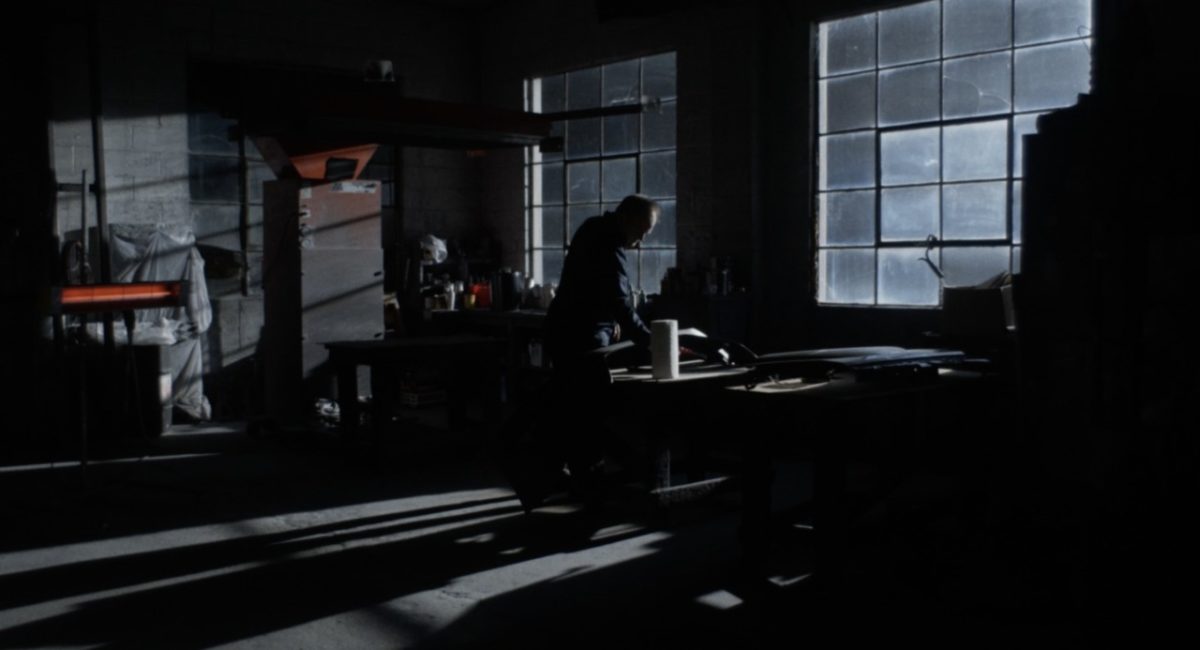
Happer’s Comet is an all-nighter in a surreal, non-horror sense. A mysterious entity keeps small-town residents awake like the world faces judgment day. Their activities trance the audience into a Buñuelian universe where the minutiae gives us many ways to react. Filming during the pandemic, Tyler Taormina, along with his music-driven collective Omnes Films, generates another experiential enigma toward escaping our realities. The film’s dialogue-free, languorous, interpretive sound design imbues its eternal de-classification as a dream, a stimulation, or the other side of the world. They find the fun in a town with dull features. – Edward F.
Huesera: The Bone Woman (Michelle Garza Cervera)

It’s been a few weeks since I caught up with writer-director Michelle Garza Cervera disturbing pregnancy horror, and I still hallucinate the cricks and cracks of The Bone Woman in my everyday life. The Bone Woman is a crunching curse of an undead woman creature that follows the young, expecting Valeria (a terrific Natalia Solián) in the most disturbing ways possible. Take, for instance, their first encounter, in which the Bone Woman hurls herself off a balcony, bones smashing on the asphalt in an orchestral crash. As if that isn’t enough, she pushes her upper body off the ground and holds it there like a seal, body mangled underneath her, staring up at Valeria expectantly. Needless to say: pregnancy ain’t easy. – Luke H.
Human Flowers of Flesh (Helena Wittmann)
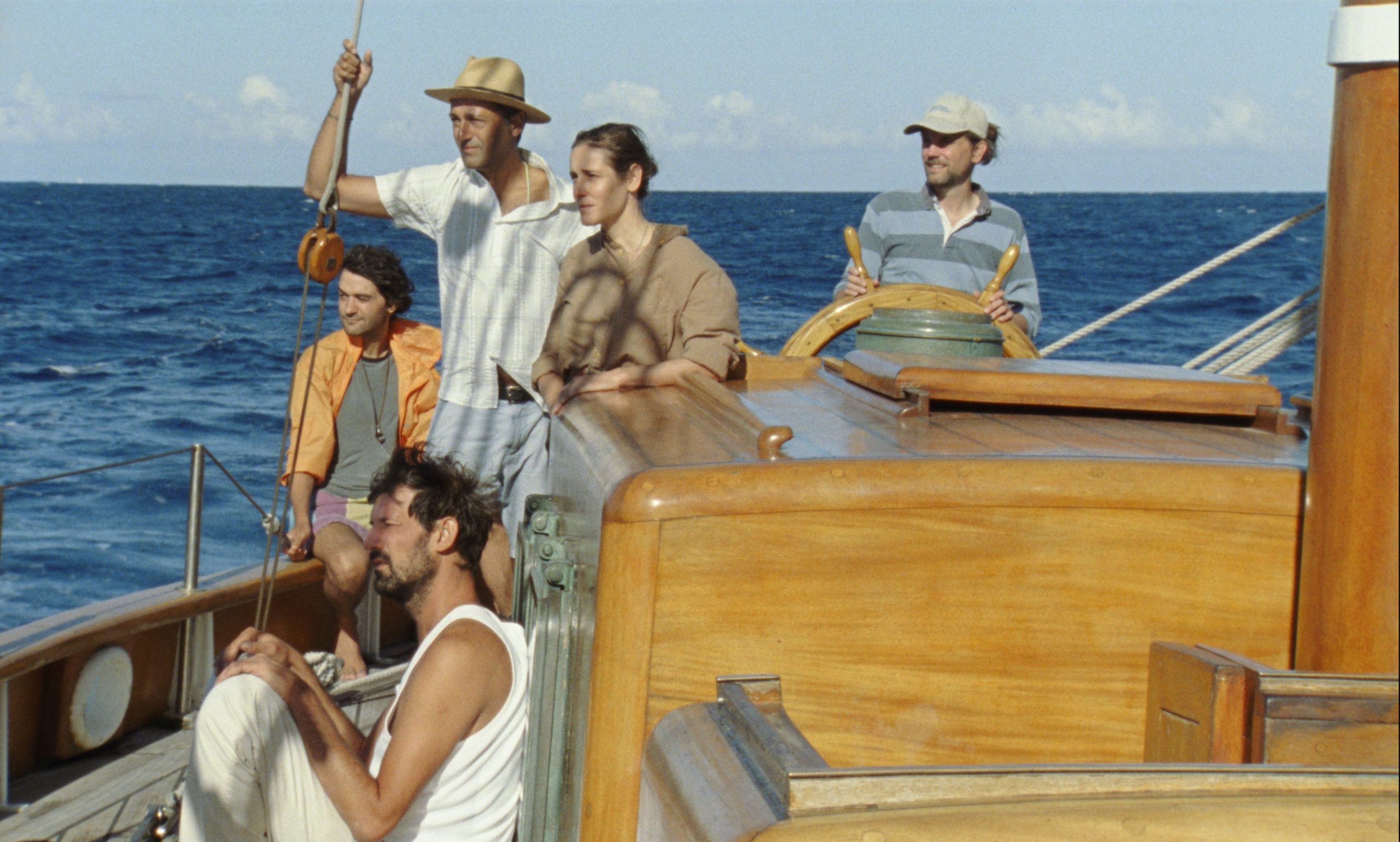
Early into Helena Wittmann’s 2017 feature debut, Drift, a character recounts a Papua New Guinean tale of the world’s creation. Back when the planet was all water, a giant crocodile kept paddling around preventing the sand to settle; only after a warrior slaughtered the beast did the land jut into being. A few minutes into Human Flowers of the Flesh a sailor shares another legend, this one from Ancient Greece. As he chopped Medusa’s head, Perseus dropped it on the shore; the seaweed absorbed the Gorgon’s petrifying powers, and that’s how coral was born. Wittmann has a knack for myths, and her cinema radiates a certain mythical grandeur, a pleasure as primeval and untimely as the stories her projects orbit around. Flowers, in that, feels both ancient and novel. It’s a film whose visual experiments invite one to see the world anew, even as the demons that fuel it harken back to a passion for storytelling that’s as old as time itself. – Leonardo G. (full review)
A Human Position (Anders Emblem)
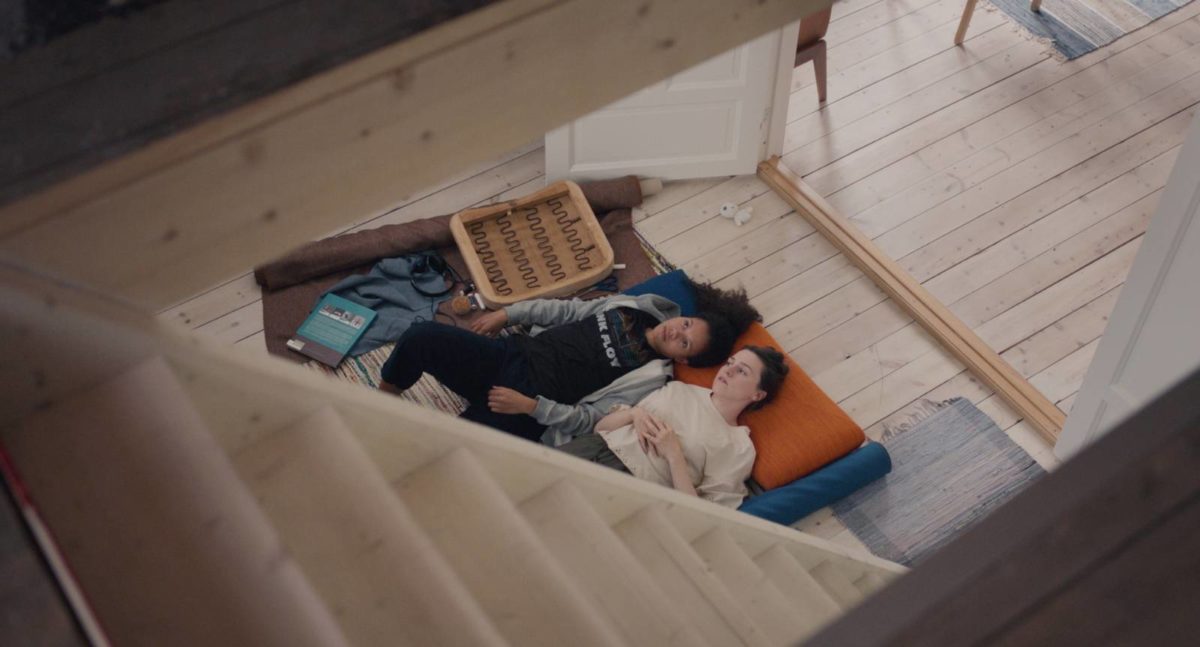
Anders Emblem’s sophomore feature takes a quiet, indirect look at a young woman in crisis, when a local news story causes her to reexamine the privileges that allow her to lead a tranquil life. Emblem has a good eye for exact, striking compositions that convey his protagonist’s sense of unease, and he maintains a light, relaxing tone that allows the film’s ideas to develop organically. A Human Position came out on Mubi earlier this year to little fanfare, which isn’t a surprise for a film this modest in appearance. But give it a chance and you’ll find one of 2023’s true hidden gems. – C.J. P.
The Integrity of Joseph Chambers (Robert Machoian)
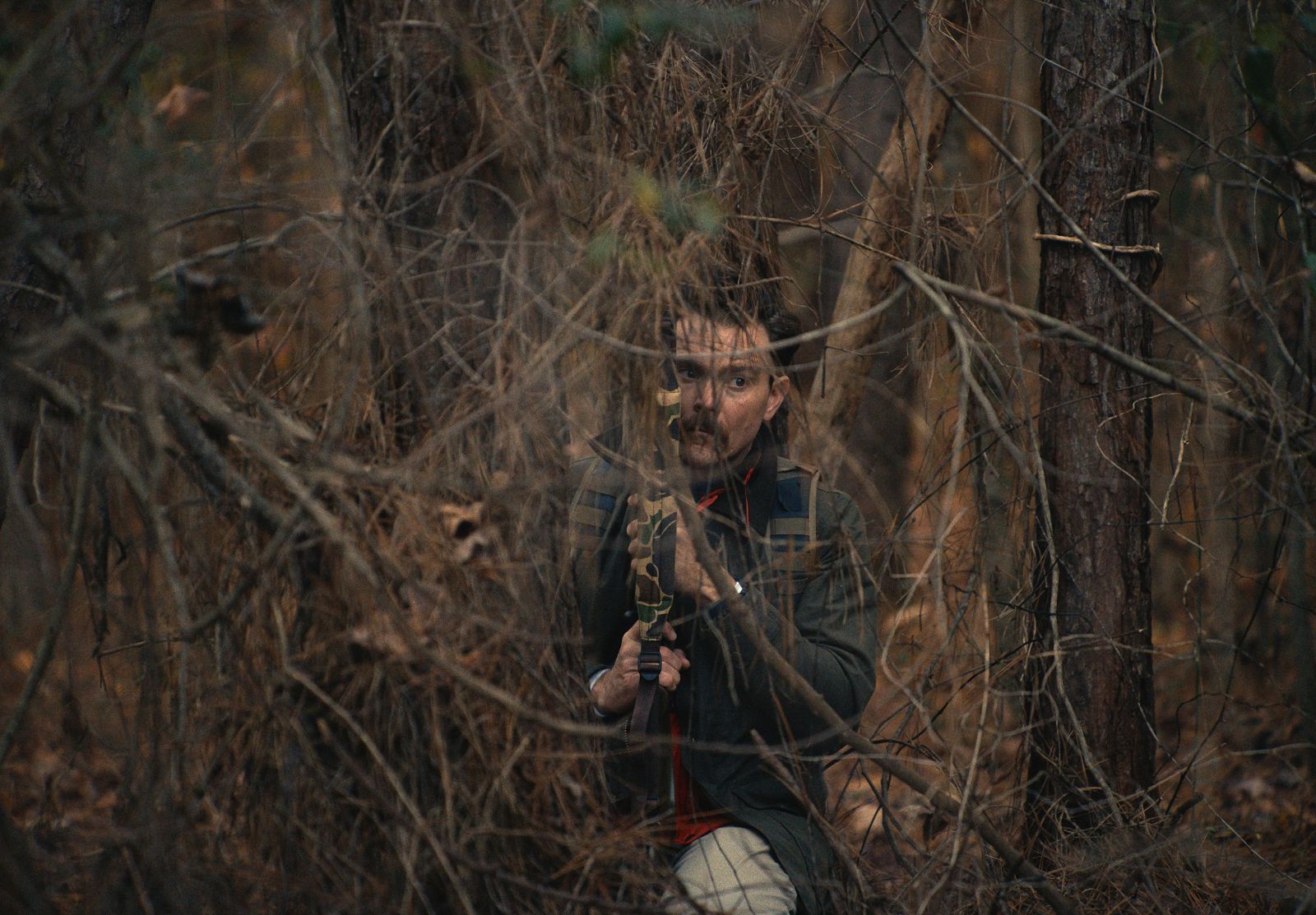
If the apocalypse comes, we’re all screwed. Fancying himself a survivor with a desire to provide for his family should “things go south,” Joe (Clayne Crawford) gets up before the crack of dawn, leaving wife Tess (Jordana Brewster), swapping his BMW for neighbor Doug’s (Carl Kenedy) truck, and heading into a private wooded area. His adventures (and boredom) have their charms. He imagines he’s a baseball pitcher stepping up to the plate, he struggles to reach an overlook with all his gear on, and fantasizes about bagging a buck to take home, stick in the freezer, and feed his family in the event we’re blasted back to the Stone Age. – John F. (full review)
Linoleum (Colin West)
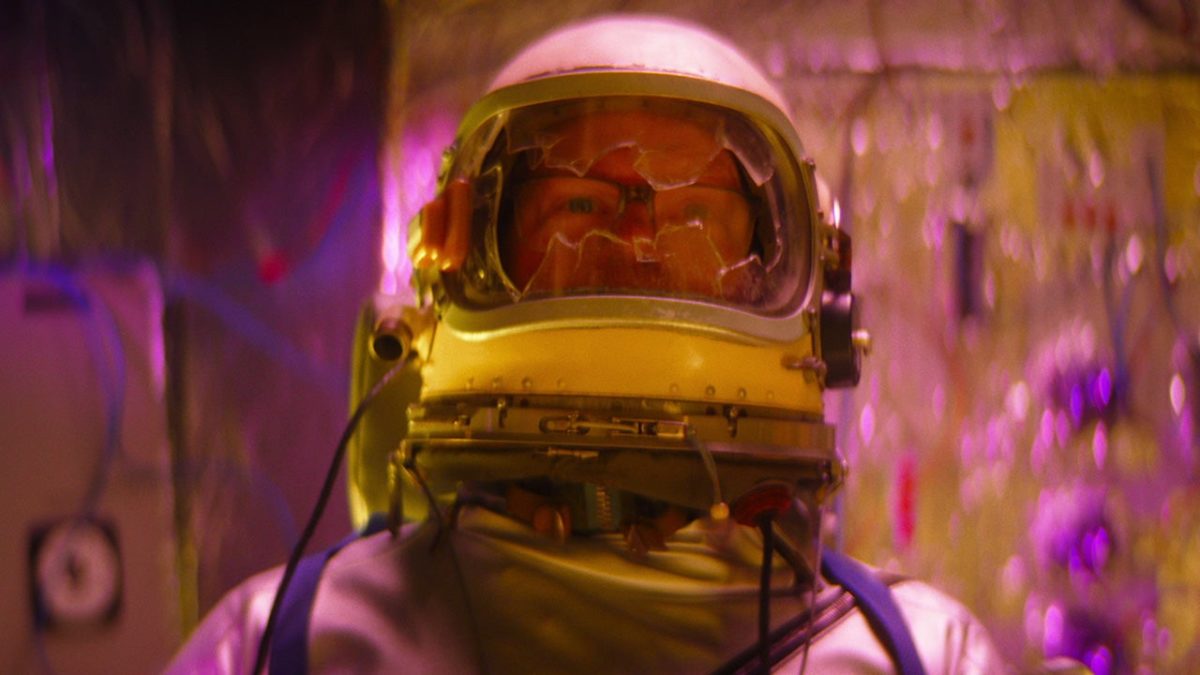
Colin West’s Linoleum, starring Jim Gaffigan in a double role, takes a while to get going. About a science TV show host who never fulfilled his dreams of going to space, the drama shifts and molds into a completely different story by the time it finishes. The film becomes difficult not to discuss in full, divulging all of the details. While Linoleum can be ambiguous, confusing, and almost trite, the third act snaps into focus and becomes a moving piece on the highs and lows of life: it proves the worth in paying attention, to sticking with an idea, and to providing a comic actor an opportunity for a dramatic turn. – Mike F.
Love Life (Koji Fukada)
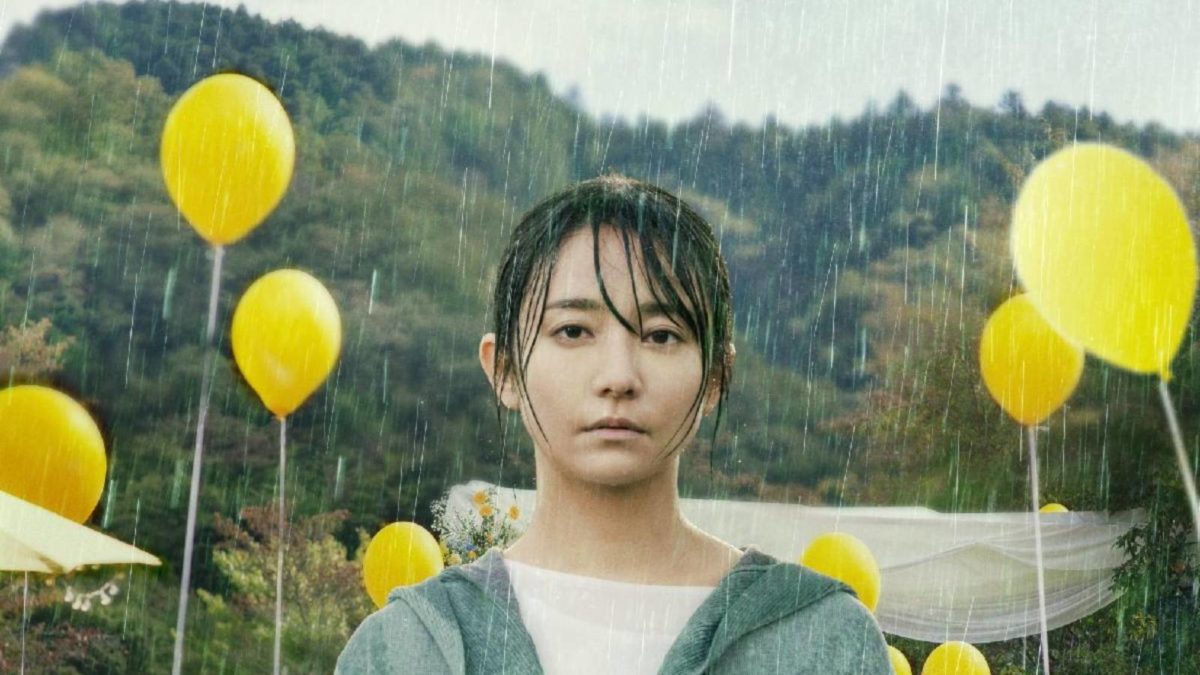
For all the significance of Japanese cinema to the filmmaking canon, the newer masters or pretenders get shorter shrift; there was a recently shattered truism in the film-sales world that only the “4K” directors––Kore-eda, (Kiyoshi) Kurosawa, Kawase, and Kitano––could be lucrative internationally. Now in the wake of Ryusuke Hamaguchi’s emergence, consider Koji Fukada: whilst both were mentored by Kiyoshi Kurosawa, they share oddly similar gifts for literariness, placidity, and abrasiveness. Love Life is Fukada’s strongest film to date: a deceptively sedate “shomin-geki” (or family drama) with at least three shocking narrative heel turns. – David K.
Matter Out of Place (Nikolaus Geyrhalter)

Austrian filmmaker Nikolaus Geyrhalter documents waste in Matter Out of Place, a documentary that travels around the world to observe garbage, how it pollutes environments, and how people try to clean or dispose of it. Those familiar with Geyrhalter’s direction should expect nothing different than his prior films: a stationary camera, precise framing, and no narration or commentary from any subjects. Whether it’s a Swiss ski resort transporting a garbage truck up and down via cable car, piles of garbage burning in the Maldives, or the aftermath of Burning Man, Geyrhalter unflinchingly looks at our current environmental state: in a crisis of our own making, one we’re unable to control and unlikely to stop. – C.J. P.
Monica (Andrea Pallaoro)
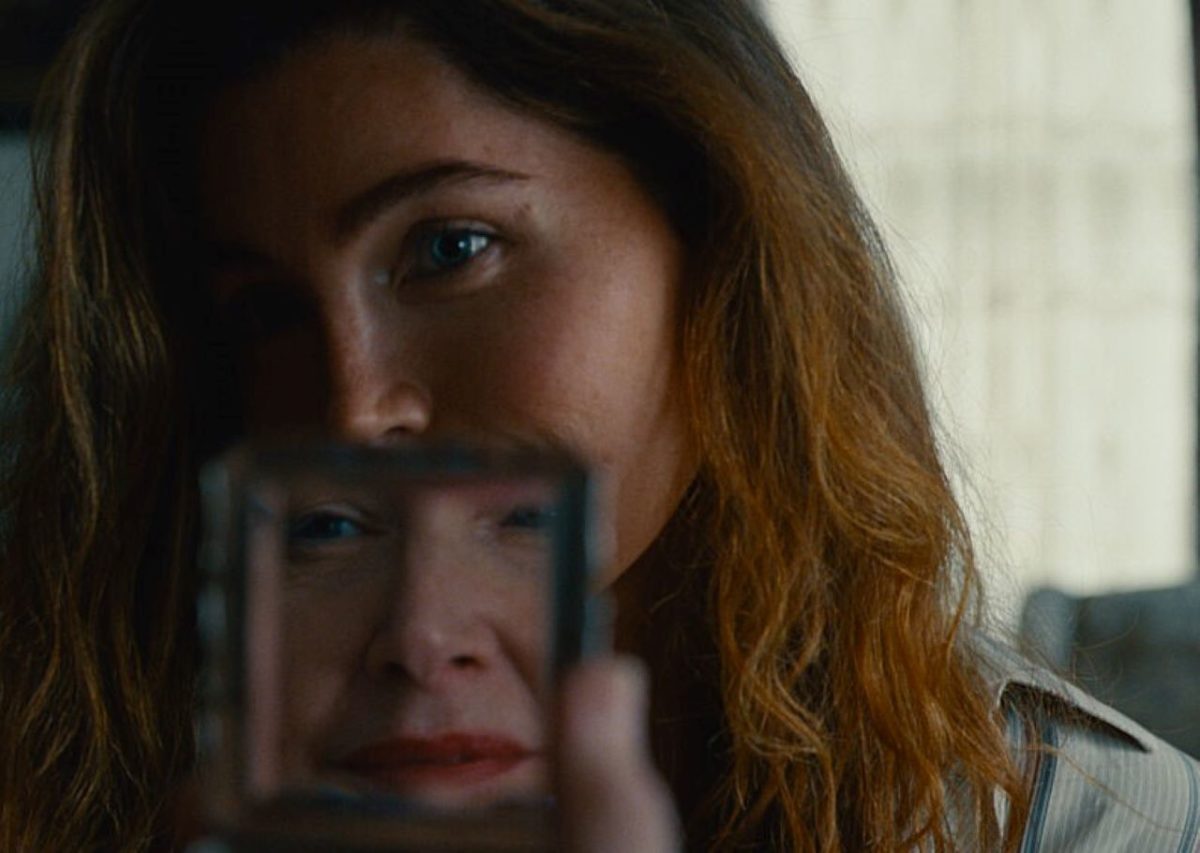
The only 2023 film as tastefully spare, solemnly glamorous, and sumptuously framed as Sofia Coppola’s Priscilla is Italian writer-director Andrea Pallaoro’s Monica, a gently unfolding petal of a film that centers a woman’s painful past in a pool of mystery that drains a little bit with each preciously offered detail. Cruising in contemplation of rejection in-between pampering sessions contrasted with visits to her dying mother, Tracy Lysette delivers an unforgettably refined performance as the film’s namesake. – Luke H.
Nobody’s Hero (Alain Guiraudie)
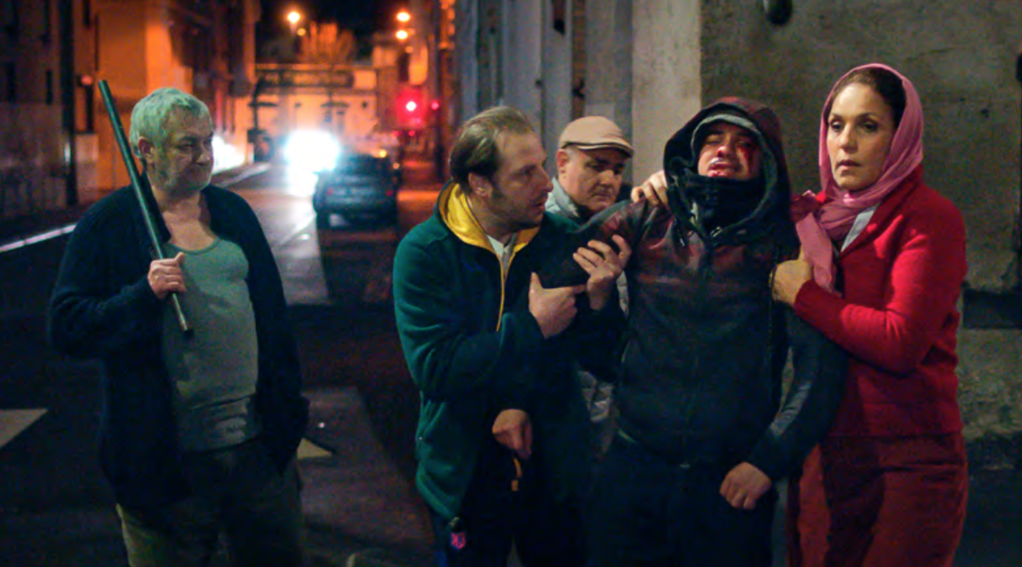
A story about a terrorist attack crossed with a bedroom sex farce sounds like an unsalvageable tonal disaster. Yet Alain Guiraudie somehow makes it work in his eccentric, eclectic Nobody’s Hero. Set and filmed in Clermont-Ferrand, Nobody’s Hero delves into the paranoia, racism, and xenophobia bubbling up in contemporary France, away from metropolitan Paris. All the while we have a droll roundelay of sexuality, with multiple characters in its diverse ensemble switching their partners––and sexual orientation––over the course of the film. Guiraudie is the unlikeliest of humanist filmmakers, unjudging and accepting of all human behavior. – Ankit J.
Once within a Time (Godfrey Reggio)

The other movie on our list brought to life by the lovely, apparently never-tired Steven Soderbergh, Once Within a Time marks Godfrey Reggio’s first film since 2013’s Visitors. In his sixth collaboration with the legendary Philip Glass, Reggio, the documentarian behind the Qatsi trilogy, dreams up a retrograde phantasmagoria (think Guy Maddin’s early-20th-century aesthetic) rooted in an environmental renaissance that never stops becoming something new. The 52-minute jewel is a chimeric apocalypse built from a flurry of experimentally crafted moving parts that must be seen to be believed. – Luke H.
Other People’s Children (Rebecca Zlotowski)
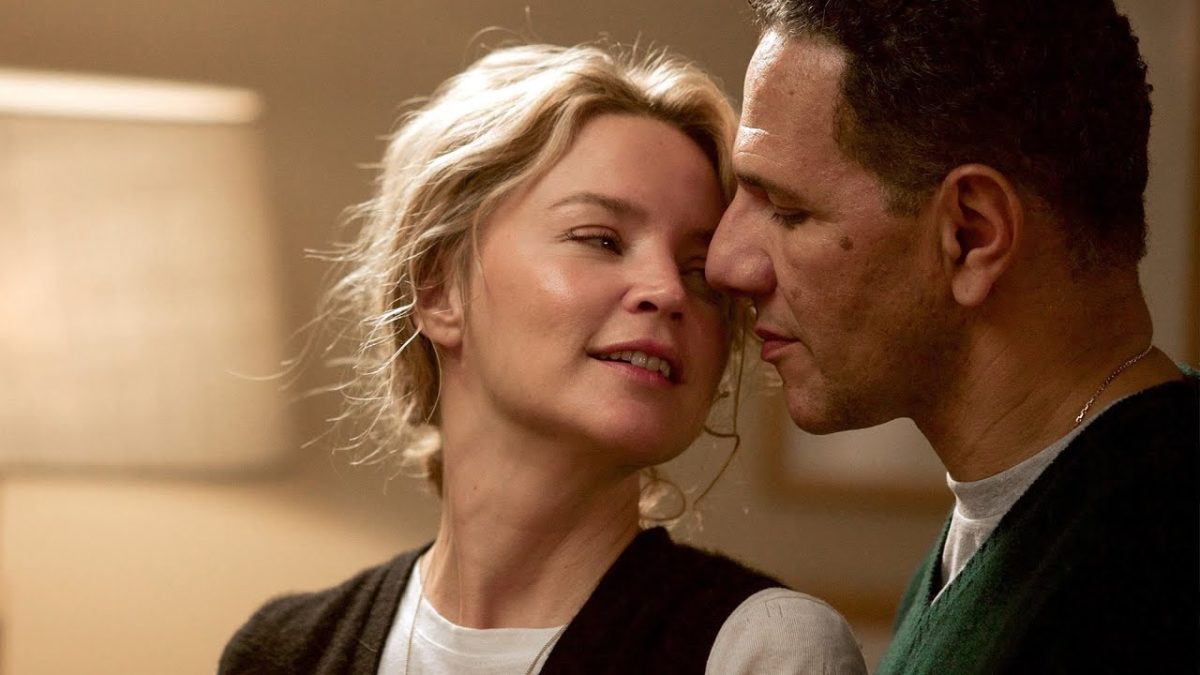
Stepparents are often presented in cinema as straightforward antagonists. It’s easy to understand why: even if you’ve never had to deal with a shitty one, countless people you know will. While a positive portrayal is hardly unique, the struggles of becoming a loving, caring parental figure when two are already in the picture has rarely been dramatized to the moving effect of Rebecca Zlotowski’s Venice competition entry. Anchored by a powerful Virginie Efira performance––an increasingly typical sight in French cinema––it’s an honest, mature relationship drama whose romantic partnership comes second to the familial. The struggles of navigating both in-tandem are never sanitized, with the film’s early romanticism becoming increasingly pragmatic and all the more painful because of it. In other words: I cried, and it’s likely you will too. – Alistair R.
Our Father, The Devil (Ellie Foumbi)
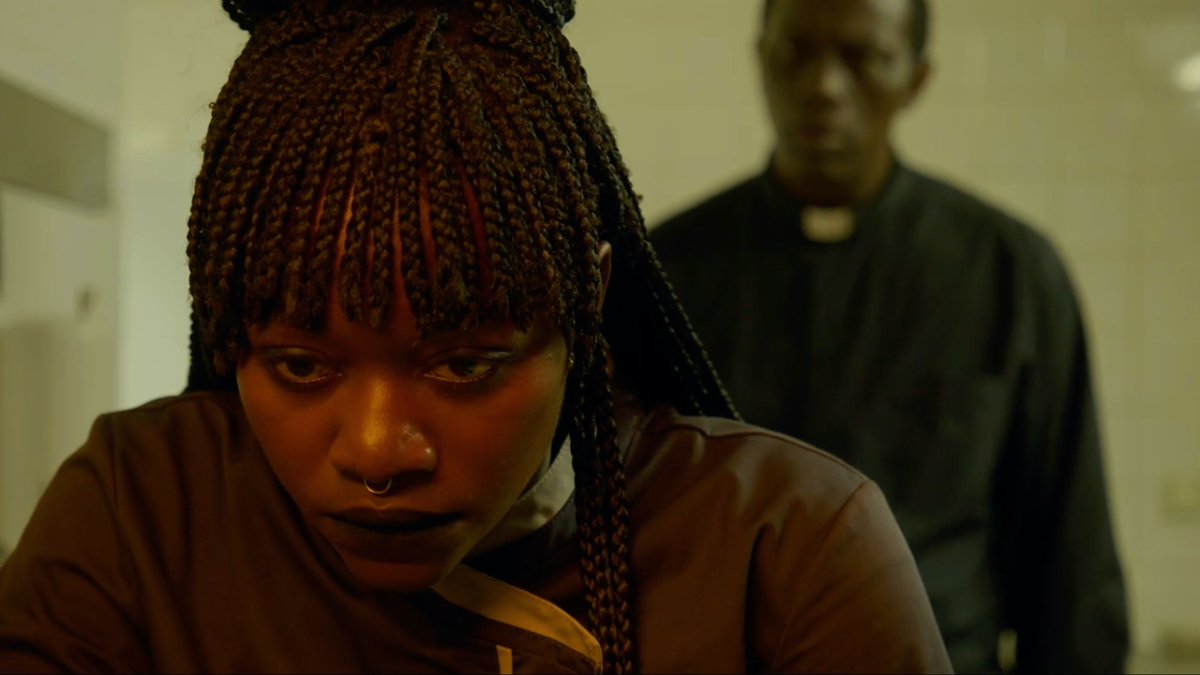
One of the year’s most difficult films, not from a standpoint of onscreen depictions of violence––which are may be the movie’s only major flaw––but from its depictions of forgiveness. Director Ellie Foumbi approaches the difficult task of trying to both understand the burning, reactionary nature of vengeance and the life of an immigrant refugee. Marie Cissé (Babetida Sadjo) recognizes the pastor of her elder care home as the man who raped and pillaged her village in Africa. In planning and executing her revenge, we get the initial thrills of a pulpy “boss girl” revenge thriller, but Foumbi has much more on her mind and twists the film into a Dostoyevskian tale of guilt, regret, and religious contemplation. One of the most unique “vigilante” films you may ever see. – Soham G.
Palm Trees and Power Lines (Jamie Dack)
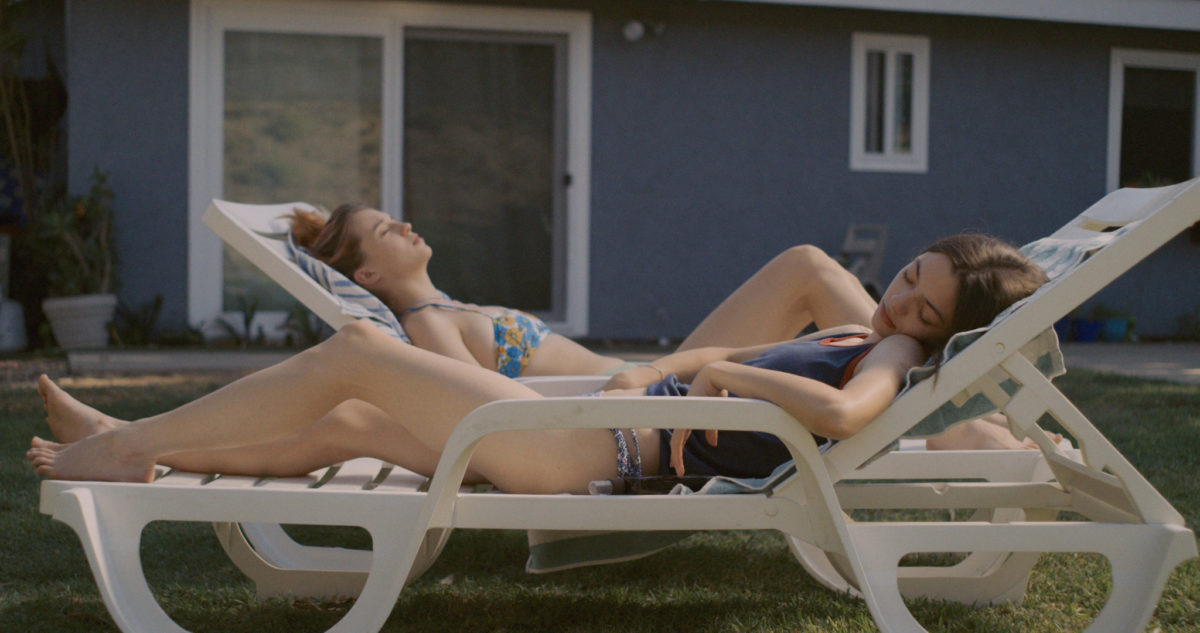
Even though it won director Jamie Dack the Directing Award at Sundance 2022 and racked up four Spirit Award nominations, Palm Trees and Power Lines had a long, slow, anticlimactic journey to the cinema. Thus most didn’t catch its limited release this March, and they missed out. Palm Trees is a powerful coming-of-age story perfect for fans of Eliza Hittman. In her first film role, Lily McInerny delivers a gut punch of a performance as Lea, a disaffected 17-year-old seduced by a man twice her age. But don’t worry: if there was a platonic opposite of the nymphet story, this would be it. At once visually dreamy and crushingly real, Palm Trees is a movie you’re unlikely to forget. – Lena W.
The Passengers of the Night (Mikhaël Hers)
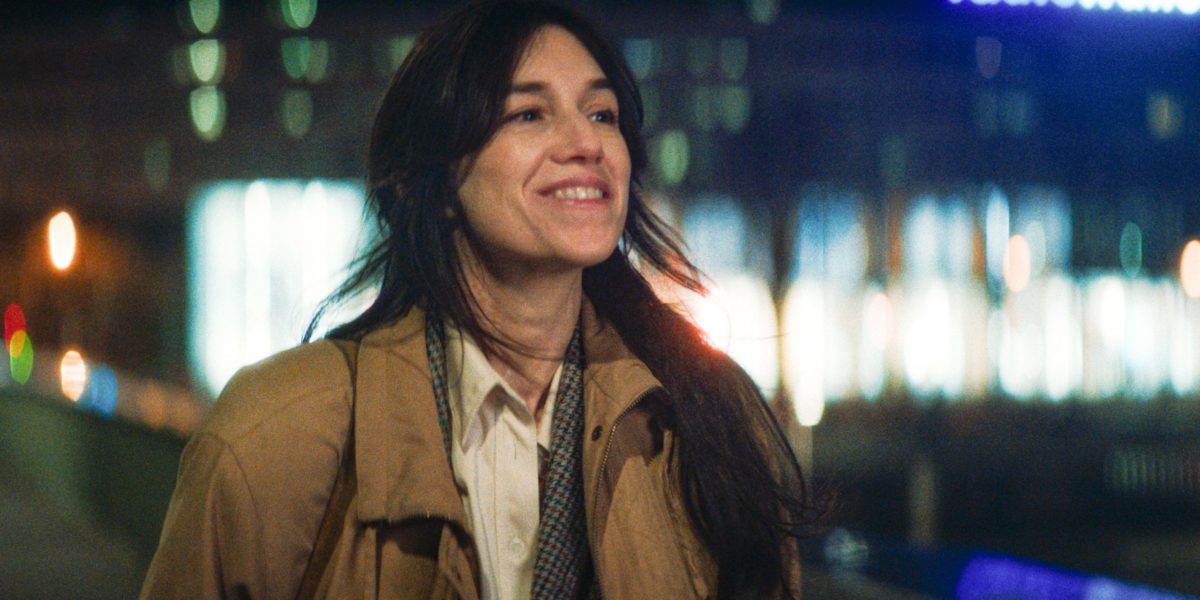
One of the great performances of 2023 comes courtesy Charlotte Gainsbourg in Mikhaël Hers’ new drama The Passengers of the Night. Following a woman adrift in 1980s Paris (and even referencing one of the best films of the respective decade, Éric Rohmer’s Full Moon in Paris) reeling from a divorce while balancing job prospects, a relationship with her two teenage children, and a new teenager that enters her life, the drama is carefully attuned to the emotions of everyone that graces the screen. Passengers exudes a mature poeticism in every scene. – Jordan R.
Petite Solange (Axelle Ropert)
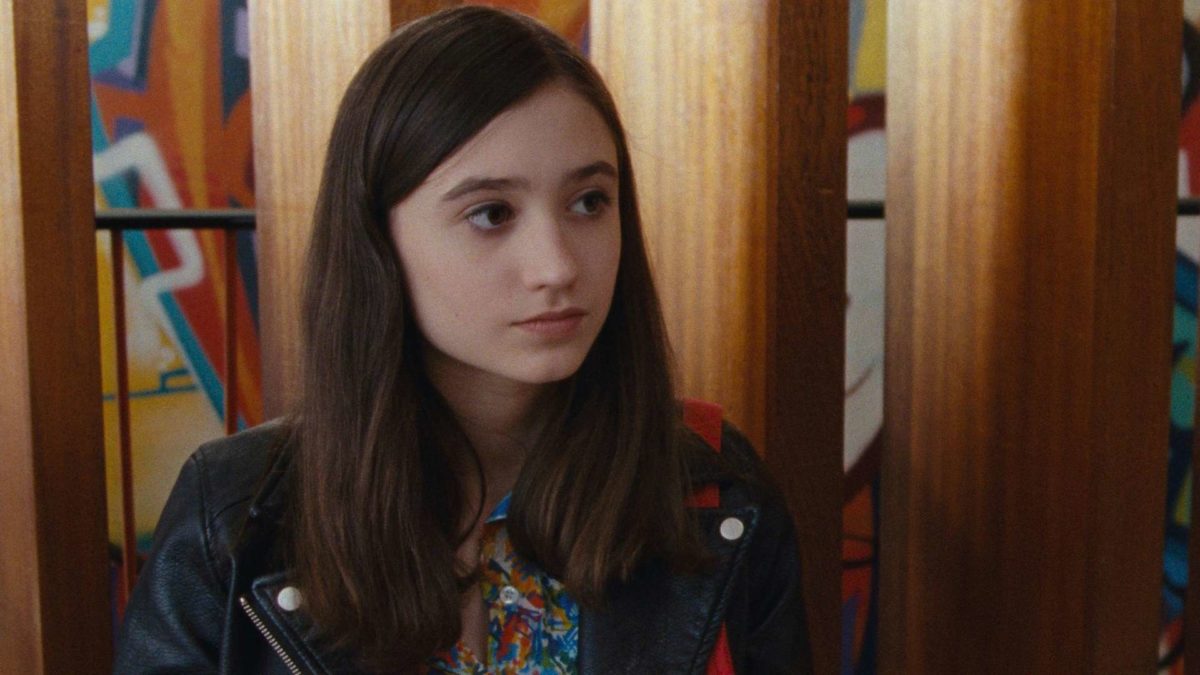
A mood of heightened melodrama gives way to something strangely enchanting in Petite Solange, the story of a 13-year-old girl coming to terms with the shattering notion that her parents’ love (and for that matter anyone’s) might not last. The director is Axelle Ropert, a French critic, actor, writer, and filmmaker whose career has pivoted between the genre films she and her partner, Serge Bozon, have collaborated on (La France, Madame Hyde) and her own body of work behind the camera. That personal side to her oeuvre has always tended more toward the familial and the bittersweet (The Wolberg Family, The Apple of My Eye), just as it has proven Ropert a keen proponent of the Tolstoyan idea that happy families are only intriguing when torn apart. – Rory O. (full review)
The Plains (David Easteal)

Perhaps the greatest gift a film can give its audience in today’s day and age is patience. The gift of time. The opportunity to take a breath and look intently, curiously at what is happening onscreen. Not many will heed the word, but David Easteal’s The Plains is a marvelously structured road narrative that offers the opportunity to take in the idea of time as an inseparable part of the film experience. When the commotion is kept at bay, we get to really hear the words of the actors, see what’s happening at the periphery of frames, and take in the ways people’s lives can drastically change in the small moments. – Soham G.
Plan 75 (Chie Hayakawa)

The alternate present of Chie Hayakawa’s debut barely registers as a dystopia, despite its plain and obvious darkness. Japan has the world’s fastest-aging population; birth rates continue to plummet, which has plunged the country into a quiet existential crisis for the best part of a decade. The first-time filmmaker explores this via proposing the most extreme conceit, a voluntary euthanasia program for anybody over 75, but despite fixating on the soulless bureaucracy tasked with carrying out the scheme––making the bleakest reality into one that’s strikingly mundane, like an inversion of Kore-eda’s After Life––it very easily finds humanity in the face of despair. Perhaps this is why it never feels like a dystopian narrative; it’s haunting, but never hopeless. – Alistair R.
Queens of the Qing Dynasty (Ashley McKenzie)

“Experimental” isn’t a design for living, but living another way. Film doesn’t exist to teach us lessons; it inquires. And the limits of the dramatic two-hander extend only so far as what hands you scrutinize, whose nails you buff and neonize. Ashley McKenzie’s Queens of the Qing Dynasty follows Star, a teen who’s attempted suicide and An, a genderqueer hospital volunteer. They survive the small systems of snow-locked Cape Breton: biology, healthcare, housing, immigration. “I feel free here. There’s less suffering.” How? They make a cinema of each other, which is something beyond even love. They experiment in us. – Frank F.
Remembering Every Night (Yui Kiyohara)

There may be a subtle melancholy to the three overlapping character studies in Kiyohara’s film, but watching it was one of the more soothing cinematic experiences I’ve had this year precisely from its sense of place, examining how this location proves surprisingly fruitful in providing life’s simplest pleasures to those who live there. – Alistair R. (full review)
Retrograde (Adrian Murray)

One of the strongest independent features of the year also has one of the simplest premises: Molly Richmond (Molly Reisman) is charged with reckless driving but every fiber of her being aims to fight it. Through a series of pitch-perfect, dryly hilarious, ultimately soul-sucking interactions, this 74-minute gem charts Molly’s journey to fight the system to dispiriting ends. Premiering alongside Jordan Tetewsky & Joshua Pikovsky’s Hannah Ha Ha and Clay Tatum’s The Civil Dead (two other films on this list) at Slamdance 2022, the three would make an excellent triple-feature about modern malaise and the mundane frustrations with various economic and bureaucratic roadblocks of daily life. – Jordan R.
Revoir Paris (Alice Winocour)
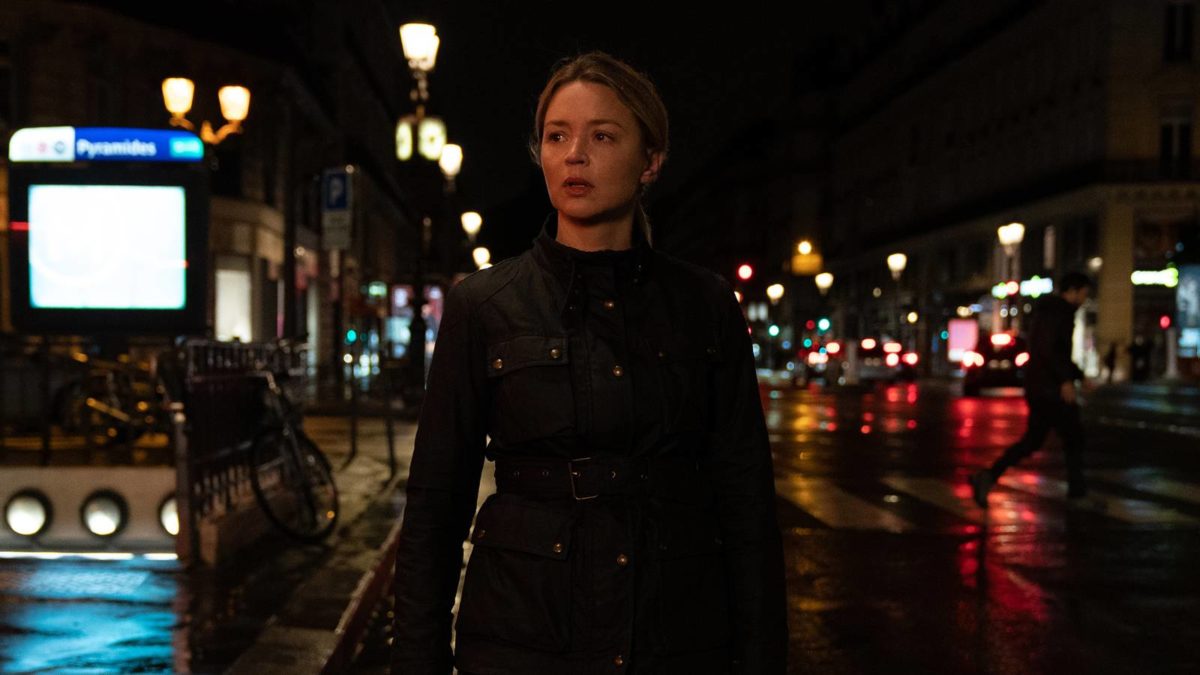
By refusing to give into sensationalism when touching what is still a raw nerve in France, director Alice Winocour sidesteps the usual pitfalls of terrorism dramas. In fact, even when depicting the atrocity itself, her camera remains tightly focused on Virginie Efira’s face, a table-setting decision that establishes Revoir Paris as a work of rare humanity in oft-exploitative “based on true events”-style filmmaking. Efira’s protagonist Mia is shaped by trauma, with the film documenting her attempts to piece together an evening she can’t accurately recall, in the process outlining the ways grief manages to both unite and divide survivors and their families. It’s still emotionally broad, of course, but far more sensitive than any recent terrorism-themed drama that I can recall. – Alistair R.
Rimini (Ulrich Seidl)

With each new Ulrich Seidl film, one never knows what we’ll get. It could be a wallow in misanthropic exploitation or a darkly insightful expose of the ugliest side of human nature. As close as those lines are, Rimini lands on the latter side. It follows a rapidly aging singer, Richie Bravo (Michael Thomas), who sings sappy ballads to an ever-older audience, sleeps with women on the road, and heads back to his beach home. Seidl’s long takes enhance the seediness. Here, being able to make a living as a musician merely gives one a small leg up in a decaying continent, haunted by lingering ties to fascism. – Steve E.
Rotting in the Sun (Sebastián Silva)

Nude dudes at the nudist La Playa Zicatela should make the depressed Sebastian Silva feel amused. Add Jordan Firstman to the party, and the leads’ zany creativity bond soon transforms into a chaotic mystery over Silva’s sudden disappearance. The fictional, serendipitous encounter between the hard-edge director and playful IG personality in Mexico left me hanging on my seat for Silva’s tenacity in finding the light in a deep tunnel of cringy jokes. Rotting in the Sun is a topsy-turner letter of needing assistance with our mental health. – Edward F.
The Roundup: No Way Out (Lee Sang-yong)
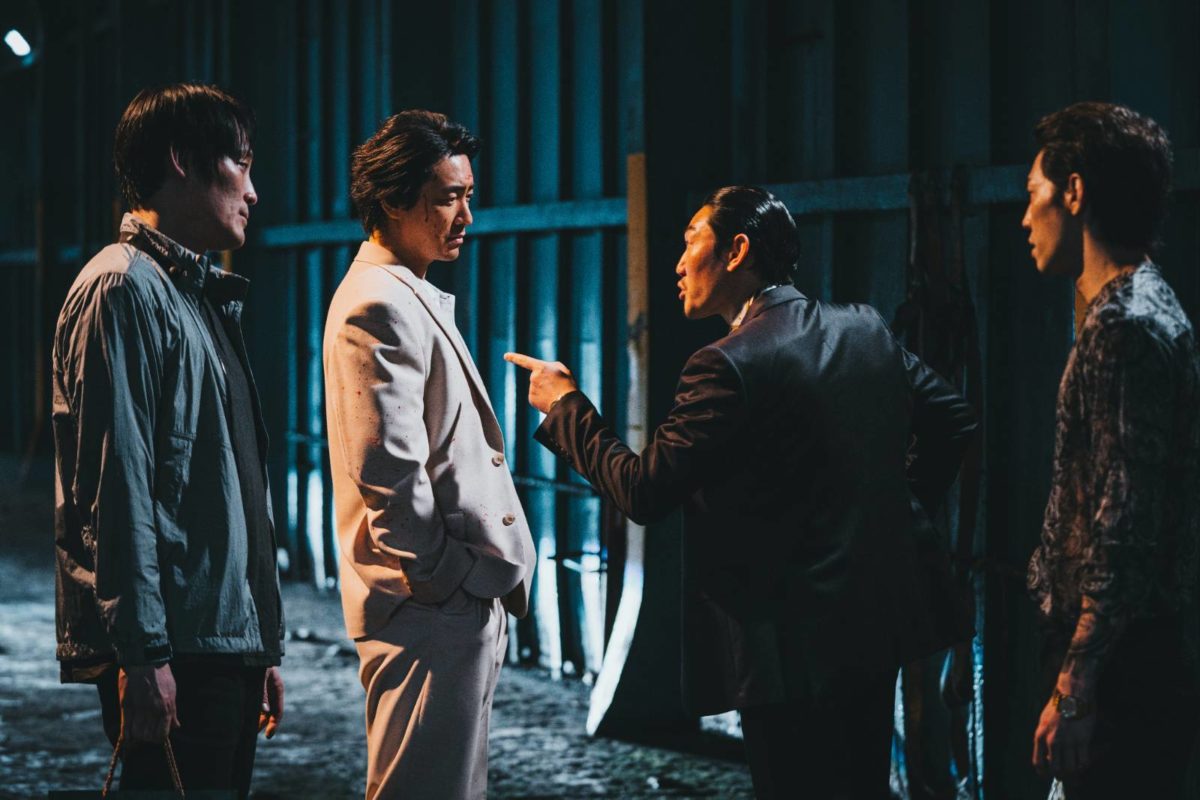
One bright spot in a lackluster year for South Korean movies was Don Lee, aka Ma Dong-seok. Ubiquitous in ads and on TV, where he shills everything from barbecue sauce to air conditioners, Lee may be the country’s guiltiest pleasure. The Roundup: No Way Out, the third in a franchse that started with The Outlaws in 2017, was by far Korea’s highest-grossing domestic film, earning three times as much as Concrete Utopia, a dreary sci-fi downer the government is pushing for an Oscar. Lee is so popular because he delivers exactly what his fans want. He’s a surly, somewhat dimwitted cop in The Roundup: No Way Out, fighting crime with brute force while ignoring his angry superiors. The action scenes rival anything on film this year, the comedy is expertly timed, and Lee remains a magnetic screen presence throughout. – Daniel E.
R.M.N. (Cristian Mungiu)
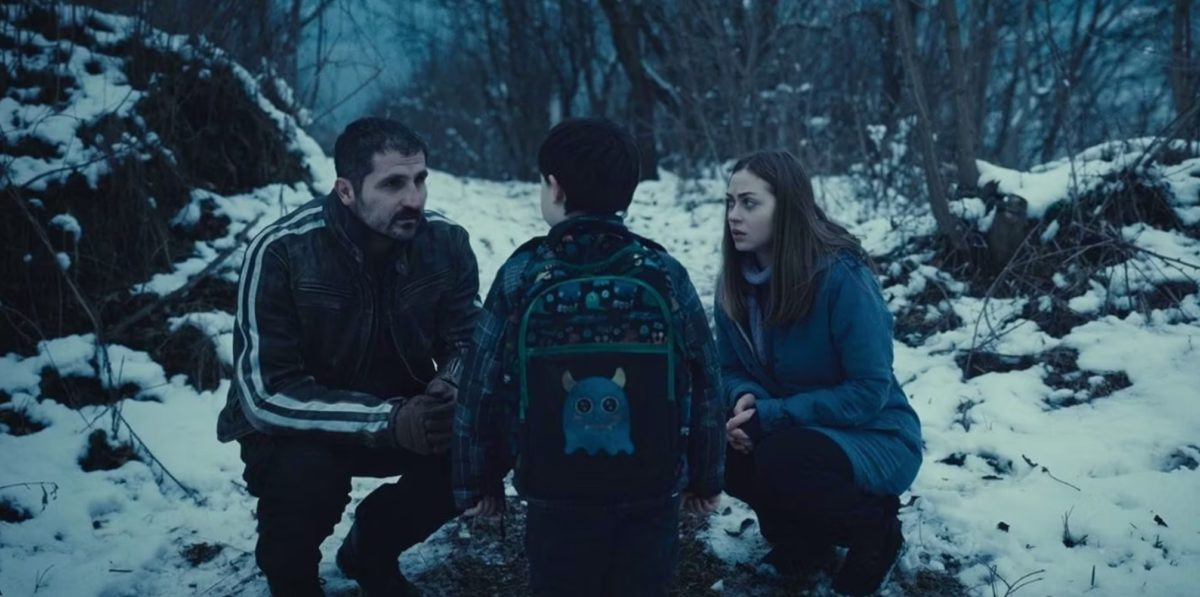
Romanian New Wave figure Cristian Mungiu’s first film in seven years, R.M.N., foregrounds the selfish Mattias’ incapability to respond to his community’s decry of their bakery hiring Sri Lankan immigrants while he arrogantly wants to be involved in the lives of his son and estranged wife who hired the employees. It culminates with a 17-minute unbroken take at the denouement, where Transylvanians argue over the employees’ presence at their church. The Altman-influenced scene recognizes Mungiu’s love for realism and the more magnificent display of extras in recent memory. R.M.N. is a tantalizing analysis of xenophobia that shows how hatred manifests. – Edward F.
Scrapper (Charlotte Regan)
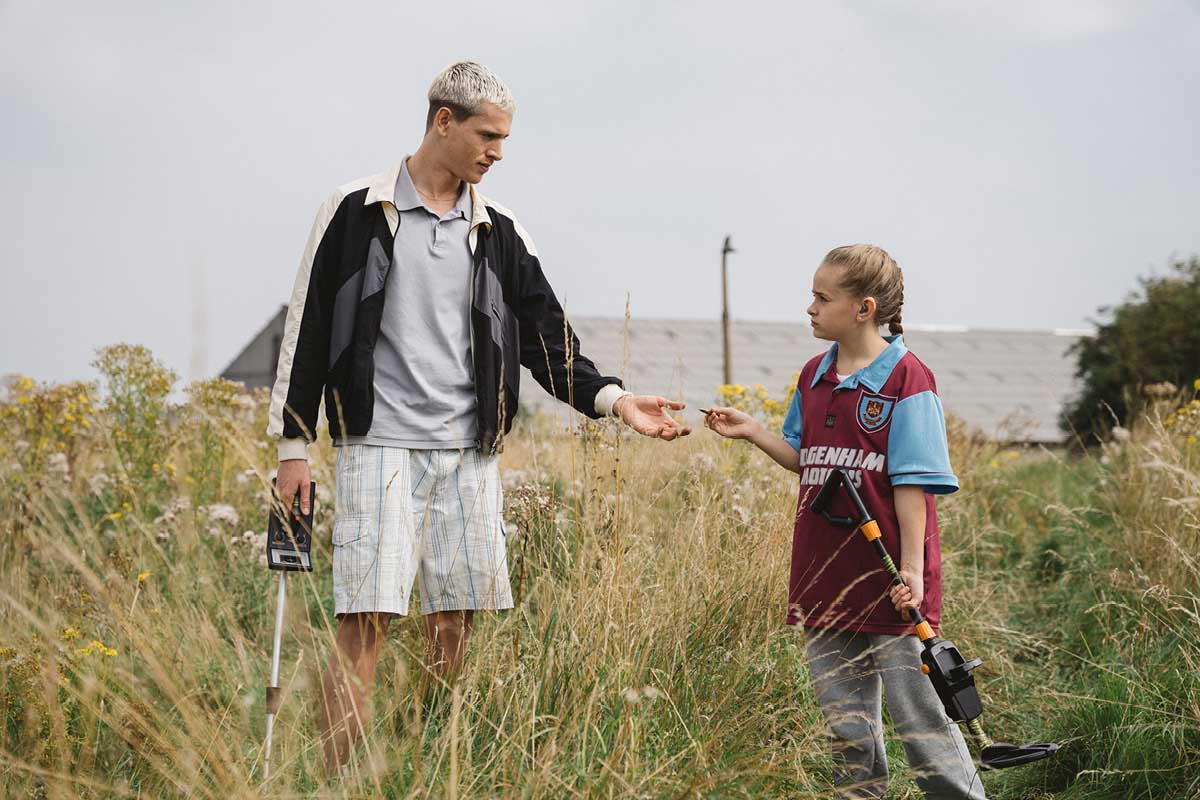
Overlooked despite winning the Grand Jury Prize for Narrative World Cinema at Sundance, Charlotte Regan’s debut Scrapper is a charming, crowd-pleasing drama staring Harris Dickinson as an eccentric young father learning on the job to care for Georgie (Lola Campbell). Georgie is set in her ways, a fiercely independent 12-year-old who’s learned to fend for herself after the death of her mother. The joy of the film is watching this uneasy pair quickly form a family even if it’s just to keep social services and the school principal away. Scrapper is aswim with humor and a rich emotional core. – John F.
Sick of Myself (Kristoffer Borgli)
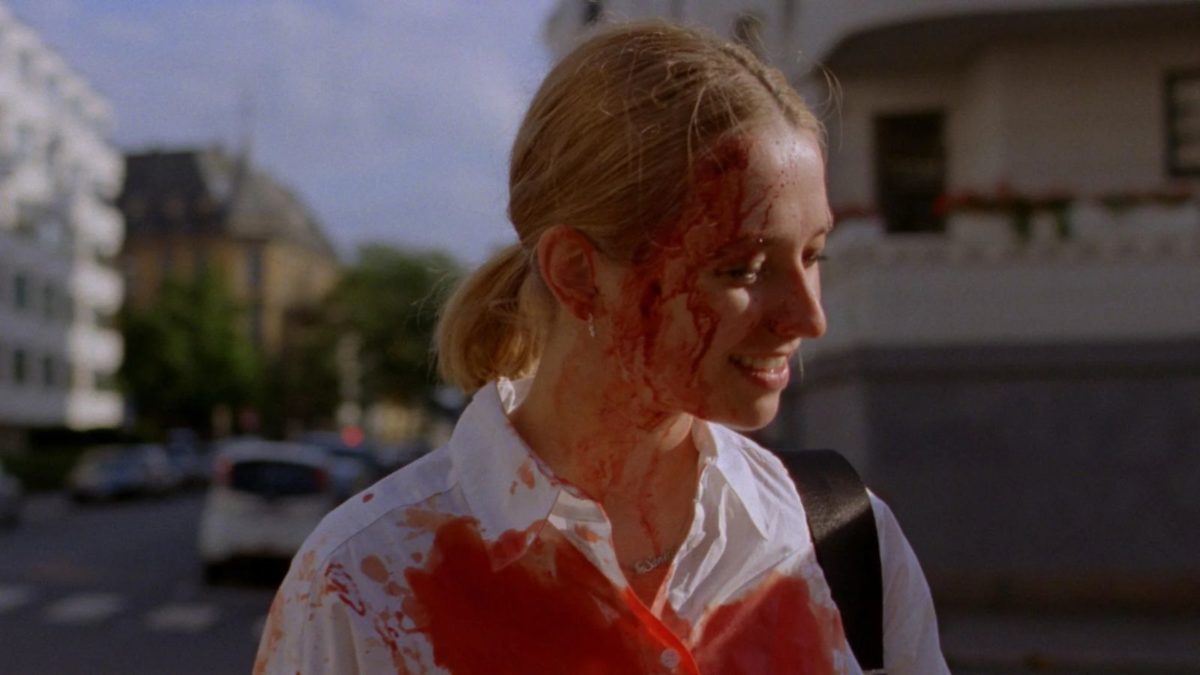
A24 devotees now know Kristoffer Borgli for his Nicolas Cage vehicle Dream Scenario. His second feature, Sick of Myself, may not be crawling with American indie darlings, but it’s definitely the superior 2023 release. This Swedish tale of narcissism and Münchausen syndrome tackles similar themes as Dream Scenario with the weirdness and chutzpah dialed to 11. Signe (Kristine Kujath Thorp, a genius) is malignantly jealous of her successful boyfriend Thomas (Eirik Sæther, also a genius), so she begins garnering attention in increasingly horrifying ways. Borgli’s piercing commentary on social media, marketing, and identity politics is essentially peerless; his penchant for body horror is just a bonus. This is the most uncomfortable cinematic experience you may ever have. You’re welcome! – Lena W.
Scarlet (Pietro Marcello)
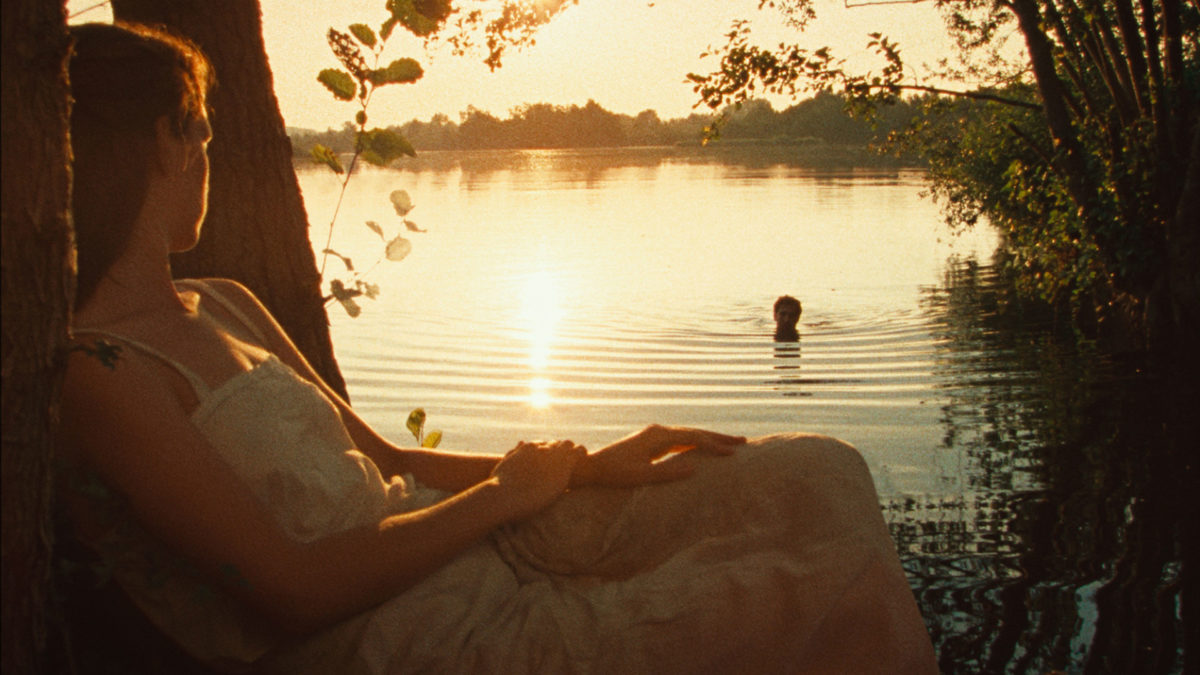
“Those hands can do anything”: stab air drowning for justice, measure labor that leathers them, hold the minute palm of an unknown daughter, punch a concertina, muster masthead. Pietro Marcello’s masterfully grainy Scarlet holds tight to tactility and makes the camera an instrument that feels the world like fingertips, like a fable. Hands splice history into 16mm, caress Louis Garrel’s face while kissing it, make the masthead into the image of the lost beloved. We wrinkle together at the end: hands line coffin tops with dirt, that most granular substance full of other hands and their works. There is gold in your hands! You have to believe me. – Frank F.
Smoking Causes Coughing (Quentin Dupieux)
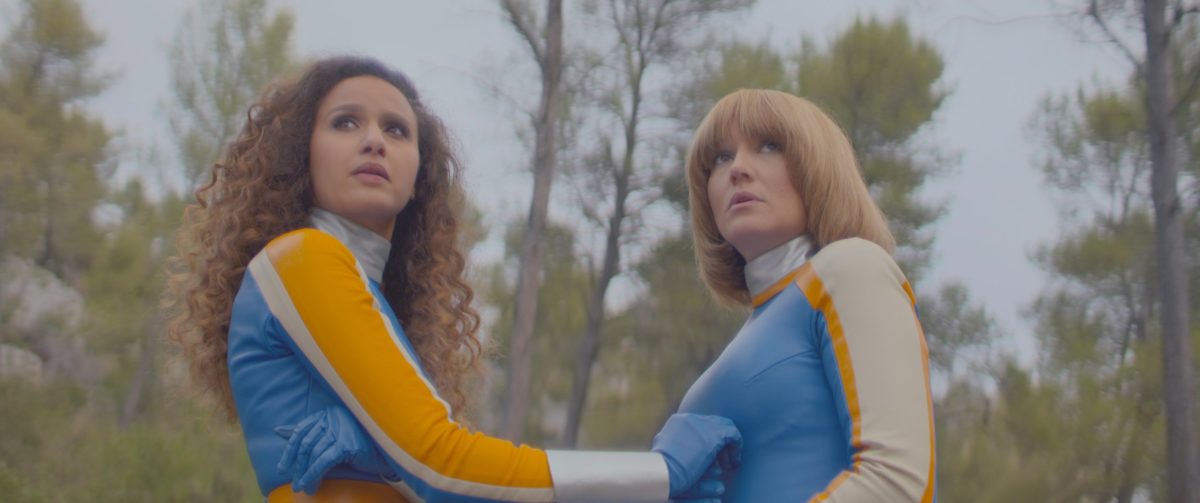
Keeping a Hong Sang-soo pace, Frenchman Quentin Dupieux is good for at least a film each year, with two on deck for the next. Smoking Causes Coughing follows a group of Power Ranger-type heroes who hole up in a bunker to await the end of the world. They pass the time trading stories, and as one can expect with a Dupieux anthology film, their tales are ridiculous and comically violent. Smoking‘s over-the-top nature never grows tiresome, due in large part to its zippy 80 minutes. In fact, Dupieux’s brisk runtimes have earned his films a coveted position as the perfect antidote to a film festival schedule otherwise filled with lengthy, more serious works. – Caleb H.
Spoonful of Sugar (Mercedes Bryce Morgan)
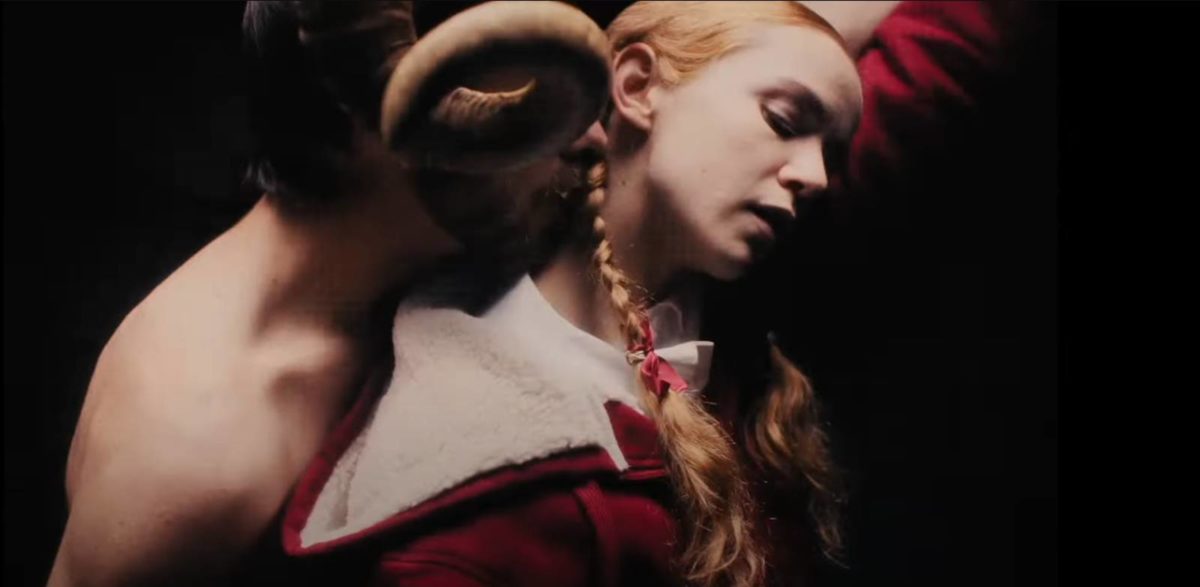
On the surface, Mercedes Bryce Morgan’s Spoonful of Sugar plays out like a Lifetime movie. An odd babysitter, Millicent (Morgan Saylor), insinuates herself into a seemingly normal family, connecting with the couple’s mute son, while also attracting the husband and alienating the wife. Yet Morgan and screenwriter Leah Saint Marie twist this rote set-up by subjectively placing us in Millicent’s point of view as she micro-doses on LSD, hallucinating her way into the family. A trippy, surreal, and ultimately bizarre film, this Shudder release fell under the radar earlier in the year but deserves a watch, if only for Saylor’s appropriately gonzo performance that proves she’s one of the more fearless actors working. – Christian G.
Stonewalling (Ji Huang and Ryûji Otsuka)
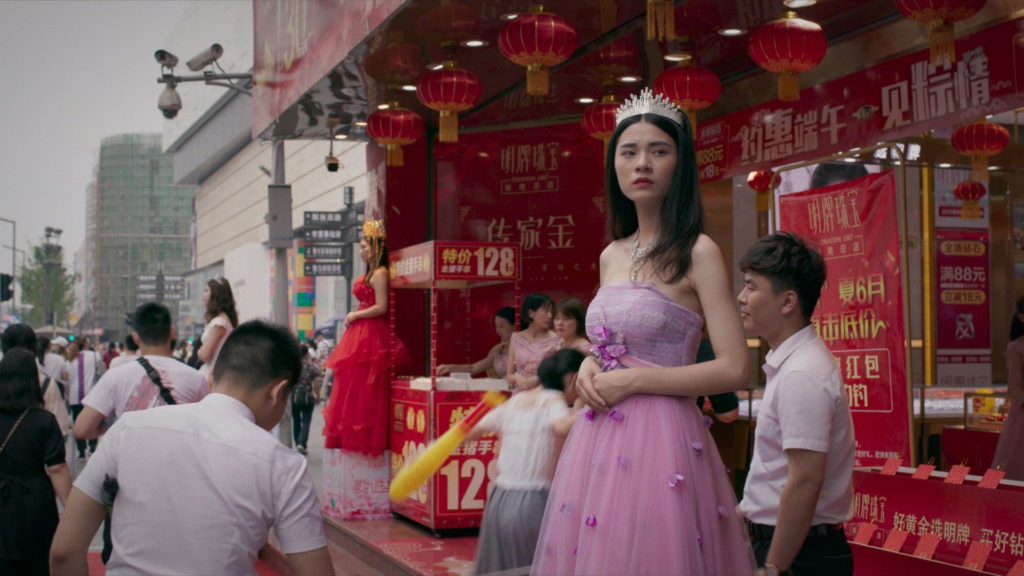
There is a universal “art film” grammar prevalent across movie-making cultures––typically marked by a still camera, long takes, unvarnished settings, naturalistic acting, and general sobriety of tone. Stonewalling, by husband-and-wife directing duo Huang Ji and Ryuji Otsuka, is an exemplary example of this filmmaking scheme. It charts, without judgment, the multiplying consequences of an unplanned pregnancy in the life of a young Chinese woman. As a trilogy-capper alongside Egg and Stone (2012) and The Foolish Bird (2017), it also paints an immersive and insightful portrait of life in contemporary China with stunning, documentary-like realism. – Ankit J.
Trenque Lauquen (Laura Citarella)
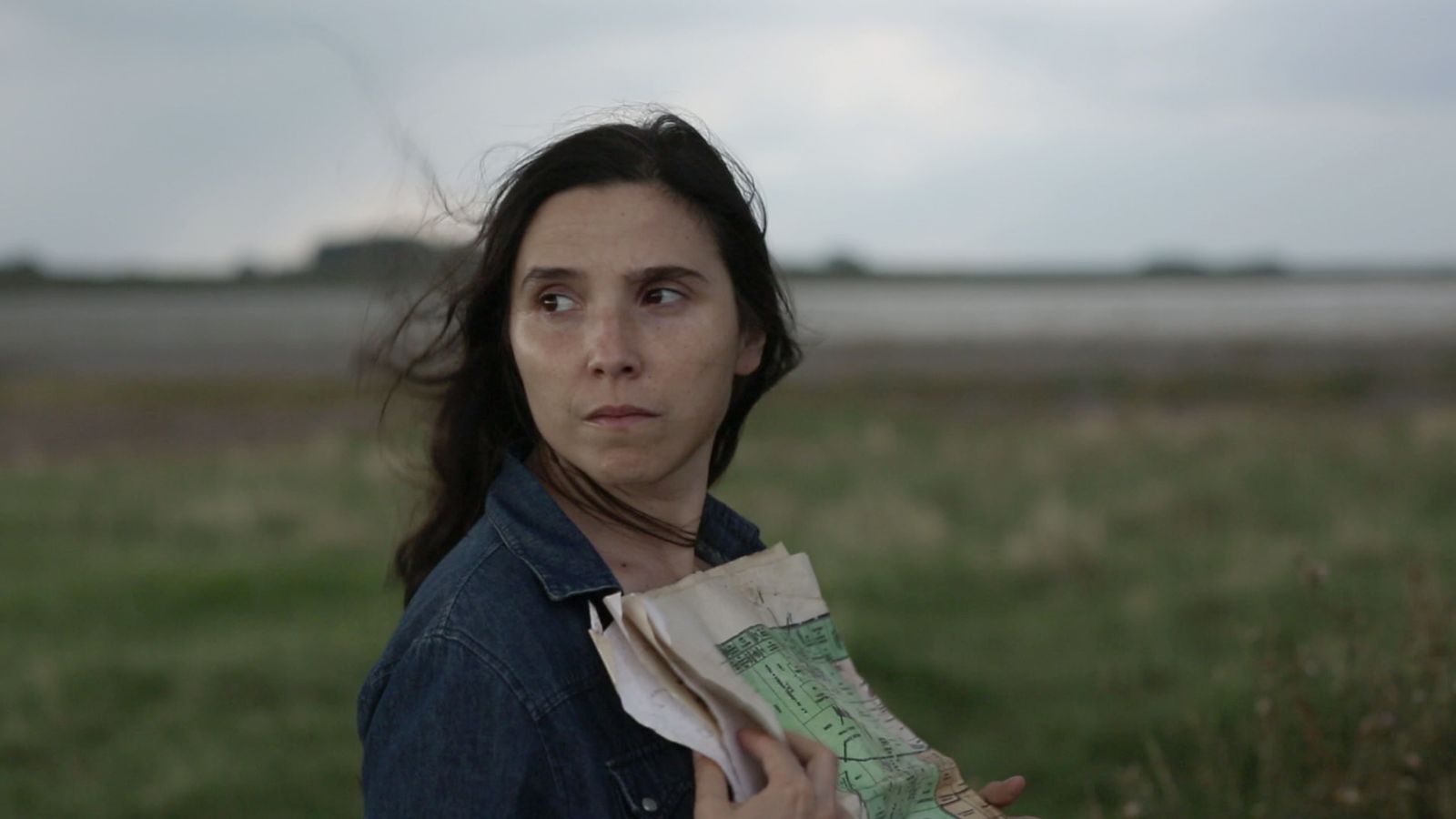
There are many films that start with a bang and many that climax at the end. There are fewer that wow with a deliberately calibrated, orgiastic halfway mark. This (among many other qualities) makes Argentinian director Laura Citarella’s beguiling, shape-shifting epic Trenque Lauquen something of a rarity. The first half of the 250-minute film (also screening in two parts at festivals, which is perfectly doable and would probably lead to a different viewing experience) concludes with a wordless scene of contemplation that abruptly cuts to a title sequence for the ages. This brutal transition comes as a surprise—not only because nothing in the two hours you’ve just spent has prepared you for the mean glare of strobe light and nasty electro beat accompanying the credits list. It also feels like a promise, a dare: “Think that’s enough weirdness for one movie? We’re just getting started.” However fatigued or perplexed one may be at this point, the sweet kick of adrenaline from this madly confident interlude will send pulses racing like the best of cinema does. But let’s start again from the top. – Zhuo-Ning Su (full review)
Tori and Lokita (Jean-Pierre and Luc Dardenne)
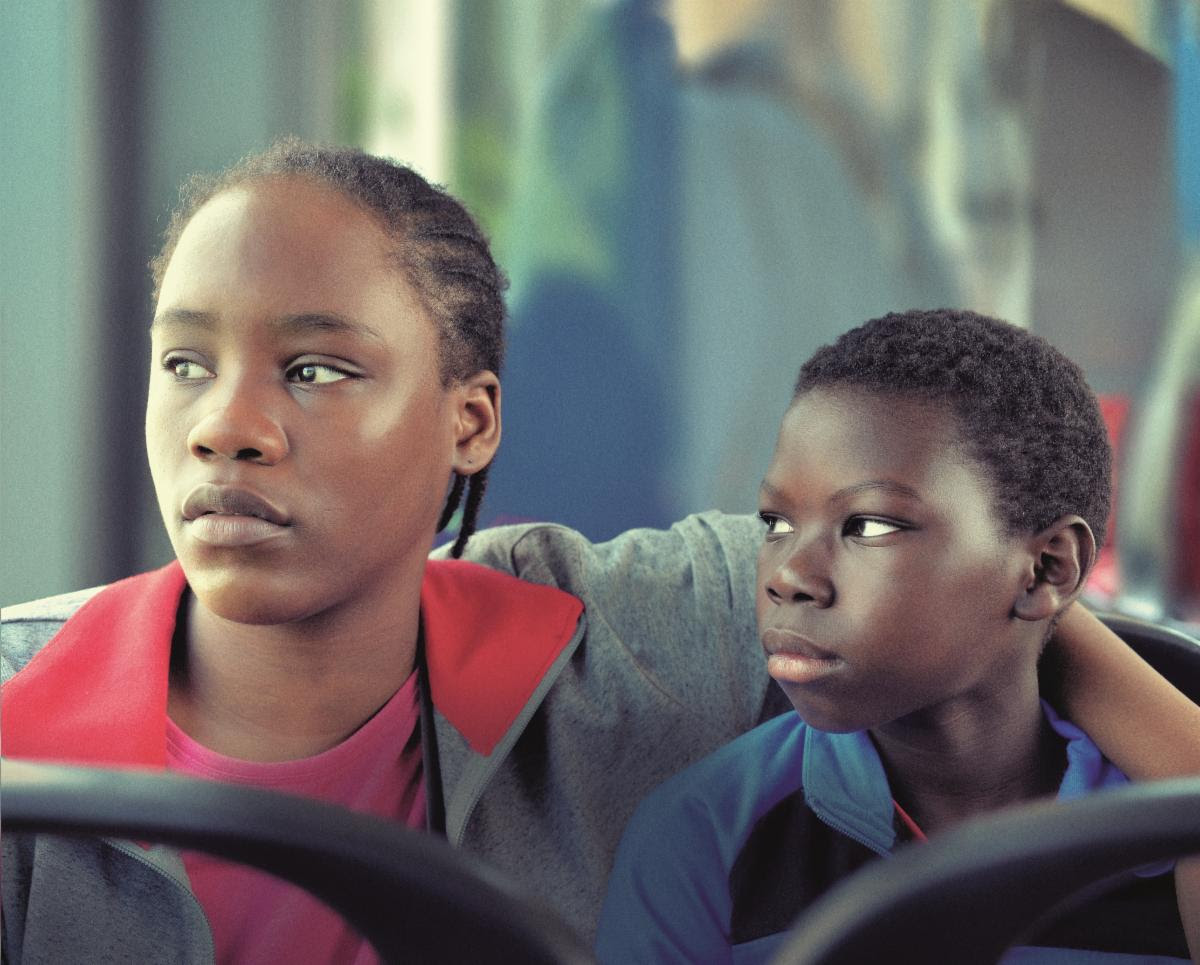
The latest work of social realism from Jean-Pierre and Luc Dardenne, Tori and Lokita is both an observant and angry film about migration. Two African immigrants––Lokita, age 16 (Mbundu Joely) and Tori, age 11 (Pablo Schils)––pose as sister and brother in Belgium, getting by on the margins which include drugs, violence and, for Lokita, occasionally trading sex for rent in the back office of a business running a front. The final moments of the film are a truly haunting call to action with an impassioned speech the Dardennes fear might fall on deaf ears. Tori and Lokita is both difficult to watch and commands attention. – John F.
Unrest (Cyril Schäublin)
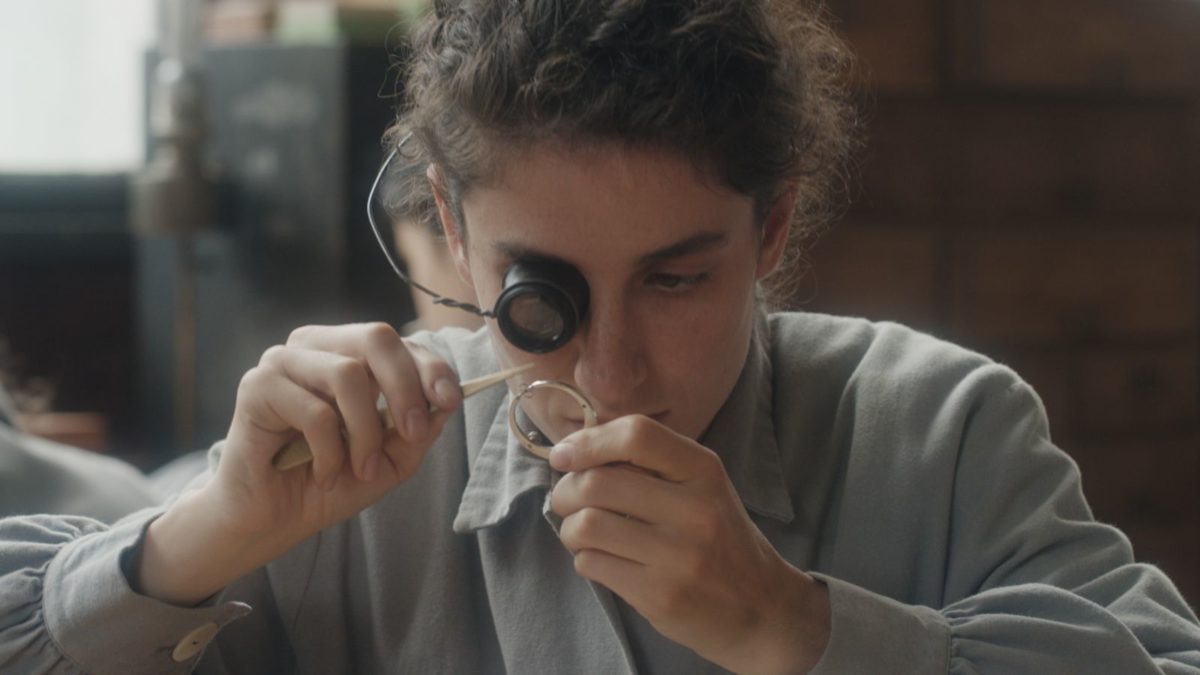
Unrest is a playful look at how the philosophy of a band of anarchists in a small village in Switzerland ultimately can’t coexist with the capitalist structures driving the local watchmaking industry. Unlike most political art, the conflict in Unrest is handled quietly; the film thus feels as fresh and revolutionary as its characters’ ideals. Lensed beautifully on film with a largely non-professional cast, Unrest’s stillness and penchant for observation ensure plenty to be mined from repeat viewings. – Caleb H.
Viking (Stéphane Lafleur)
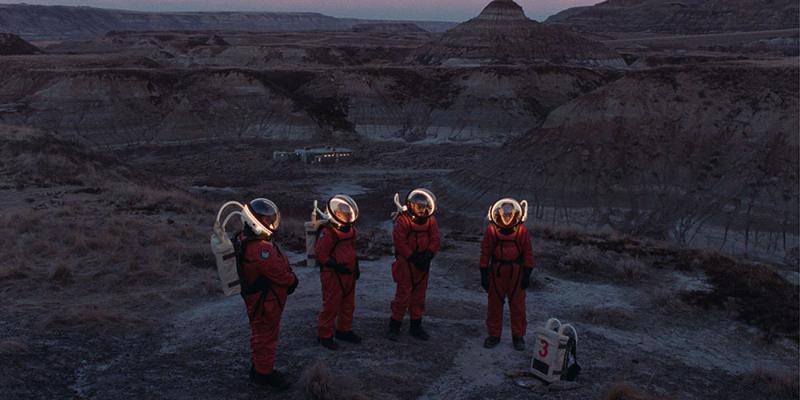
2014’s Tu Dors Nicole is a tragically underrated comedy classic in the style of Stranger Than Paradise, and it’s a shame it took nine years for Stéphane Lafleur’s follow-up, Viking. A high-concept workplace comedy, Viking tracks a team of misfits on Earth simulating a space mission to Mars. Their mission is quickly revealed as a waste of time and resources, and much comedy is wrung from interactions between participants who recognize this (and act accordingly) and those who take the mission seriously. A love story at its core, Lafleur crafts a clever comedy that is sneaky in its ability to elicit true emotion come the final acts. Let’s pray it doesn’t take Lafleur as long to make his next feature. – Caleb H.
Waiting for the Light to Change (Linh Tran)
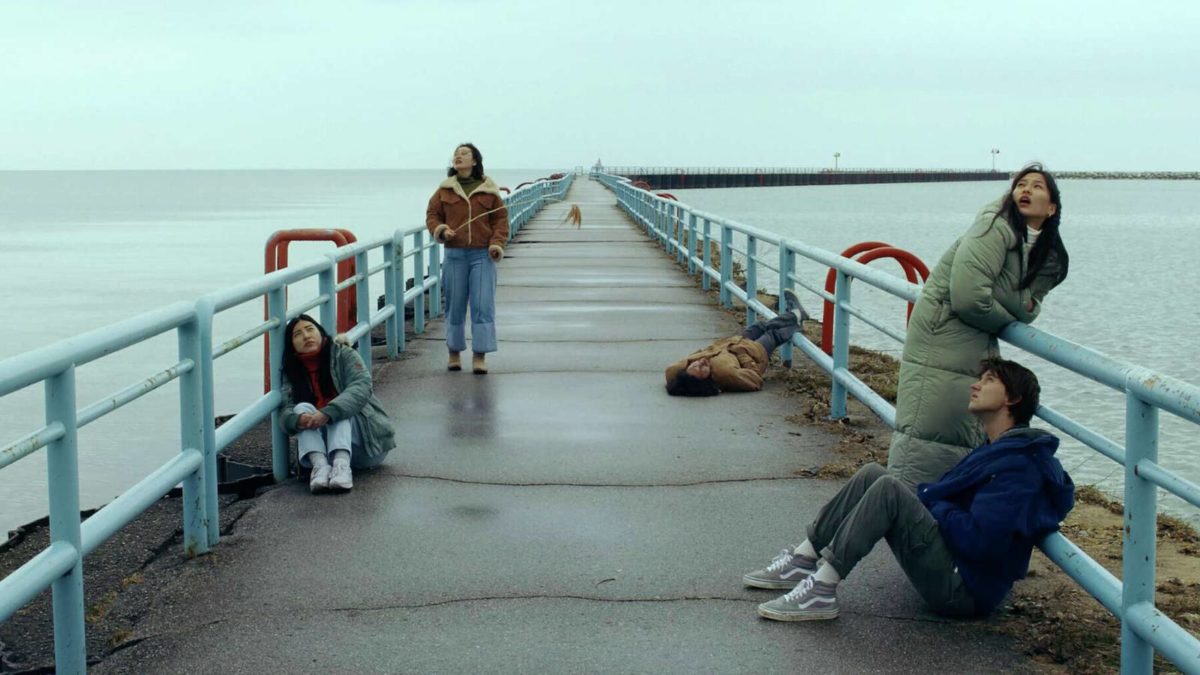
The five characters in Linh Tran’s Waiting for the Light to Change come together in awkward fashion, some reuniting and others meeting for the first time at a lake house in Michigan at the tail end of winter. What’s supposed to be a fun getaway starts on the wrong foot: they can’t find the house key upon arriving, the water’s too cold to swim or boat in, and there’s nothing to do in the small town; accordingly most of their time is spent indoors or wandering around the cold, windy shore nearby. That isolation makes for a rich starting point to Tran’s strong, confident debut feature, in which she uses her ensemble to explore the anxiety, despair, and sadness that can hang over one’s 20s while building a life and career. – C.J. P. (full review)
Will-o’-the-Wisp (João Pedro Rodrigues)
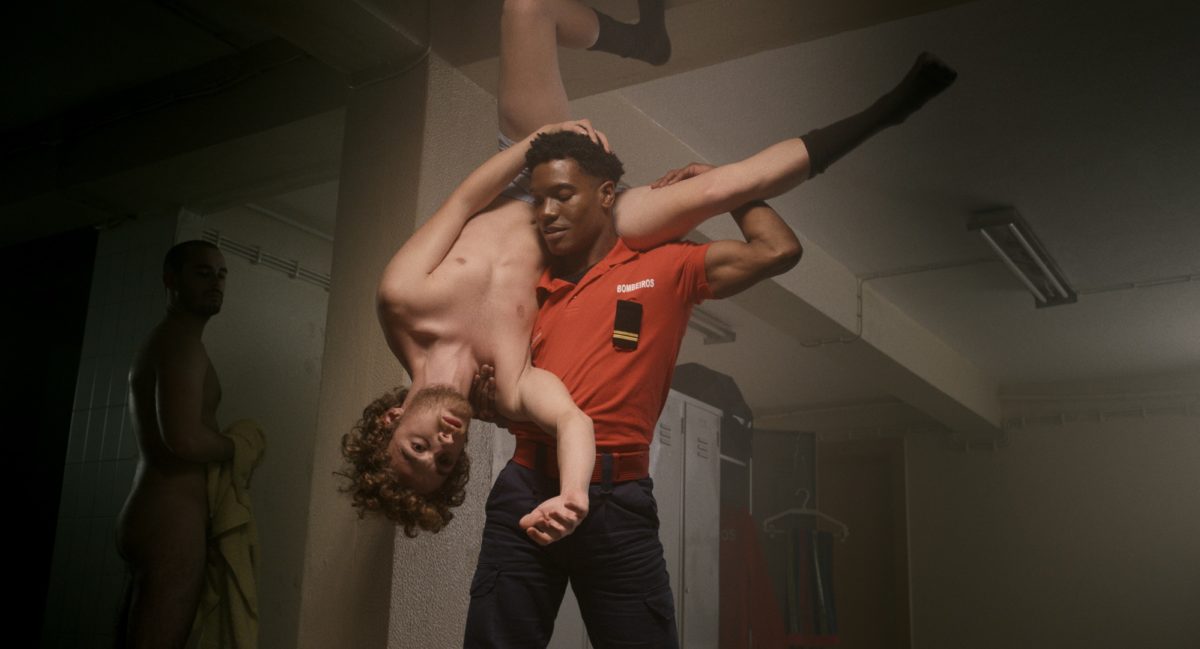
Sometimes a tree is a dick and sometimes it is only a tree. “How can we defend the forest if it’s not an object of desire?” With Will-O-the-Wisp, João Pedro Rodrigues doesn’t restage My Own Private Idaho as firemen erotica so much as he adapts Henry IV, Part II as Titane possessed by Othello. Does it work? Does it sound like it wants to? Delightfully free of a smooth landing and deliberately a mess invoking contemporary Portuguese politics in the wake of the Atlantic slave trade, colonial empire, and climate catastrophe, Rodrigues’ film runs hot, pleasure rubbed raw, a little glee in mourning. – Frank F.
Yelling Fire in an Empty Theater (Justin Zuckerman)
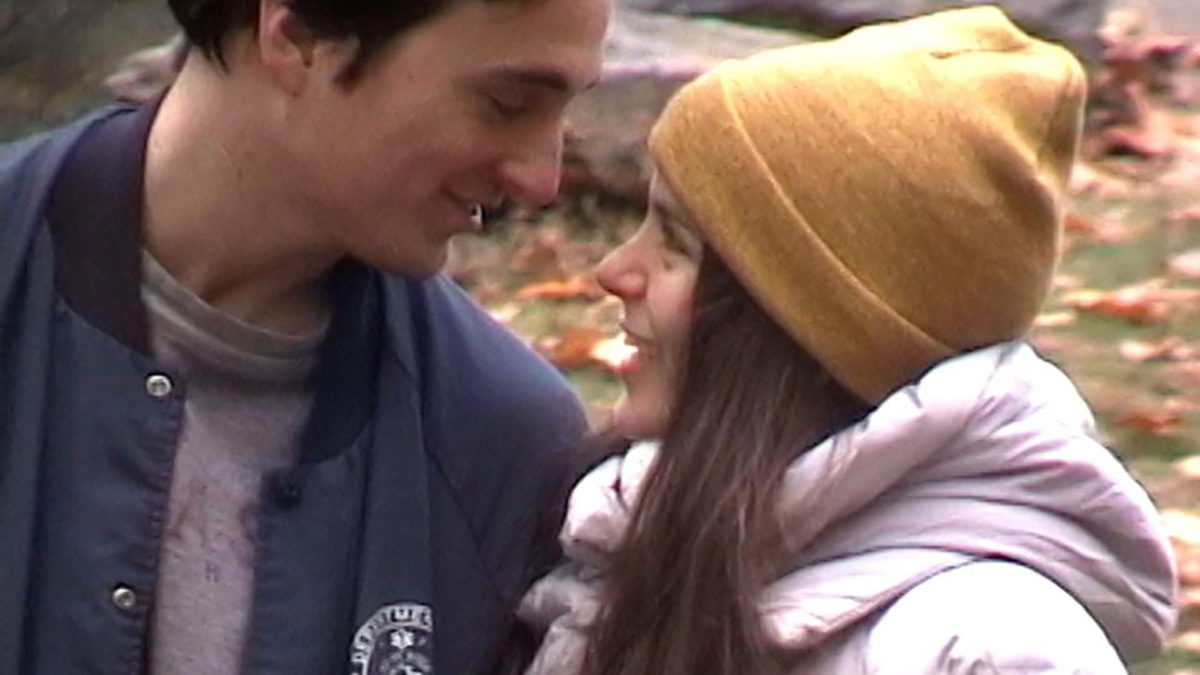
Shot on low-grade MiniDV for almost no money, Yelling Fire in an Empty Theater follows Lisa (Isadora Leiva), an earnest woman who moves from Florida to New York City, where she quickly finds herself surrounded by self-absorbed hipsters. The film suggests that if you got to know them, you’d learn the cool crowd are just as insufferable and dull as you might fear you yourself are. The film’s comedic chops––including a gag where men are always trying to kiss Lisa unprompted––ensure any central “message” is played for laughs. Produced by 5th Floor Pictures (who also have Free Time coming out next year), Yelling Fire is a compelling showcase for a budding underground NYC film scene, this time centered in Brooklyn rather than Manhattan. – Caleb H.
